Here are my favorite poems by Arthur Rimbaud categorized:
- Famous poems by Arthur Rimbaud
- Love poems by Arthur Rimbaud
So if you want the best poems by Arthur Rimbaud, then you’re in the right place.
Let’s jump right in!
- 53 Best Poems by John Keats
- 55 Best Poems by William Shakespeare
- 47 Best Poems by Edgar Allan Poe
- 43 Best Poems by Rumi
- 35 Bewitching Love Poems by Rumi
- 47 Admirable Love Poems by William Butler Yeats
- 21 Sensuous Love Poems by John Keats
- 21 Absorbing Love Poems by Pablo Neruda
- 49 Consuming Love Poems by Shakespeare
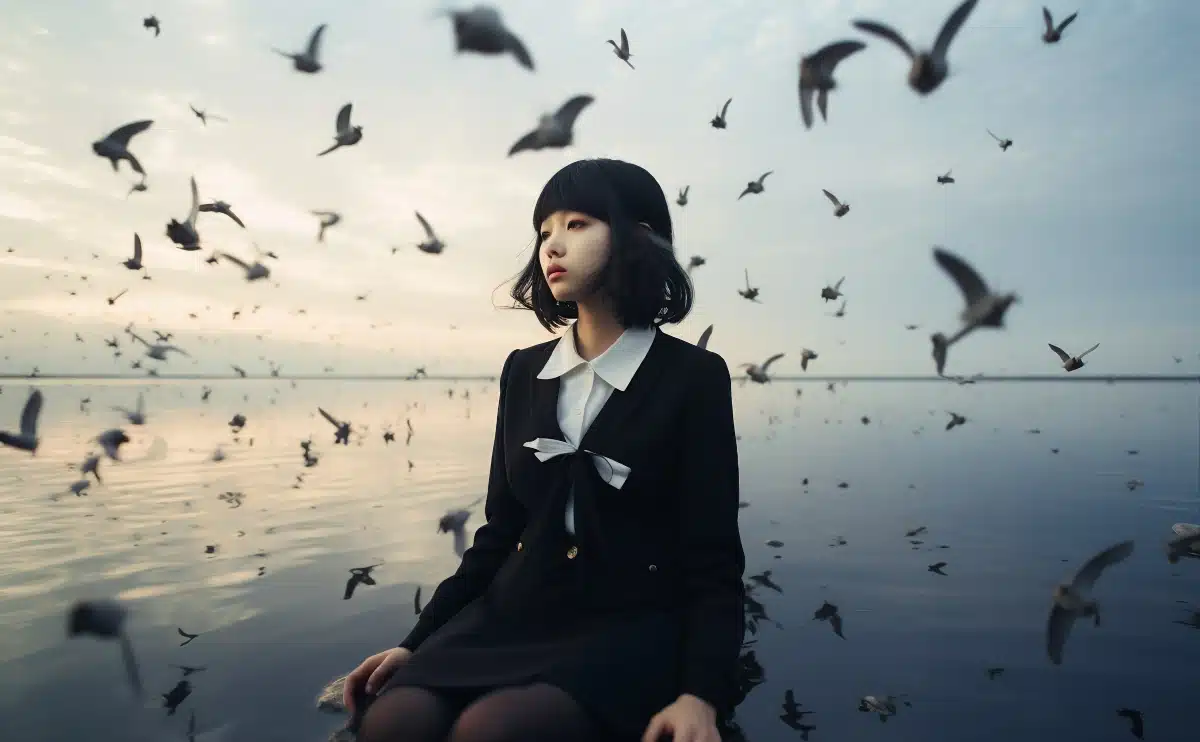
Best Poems by Arthur Rimbaud
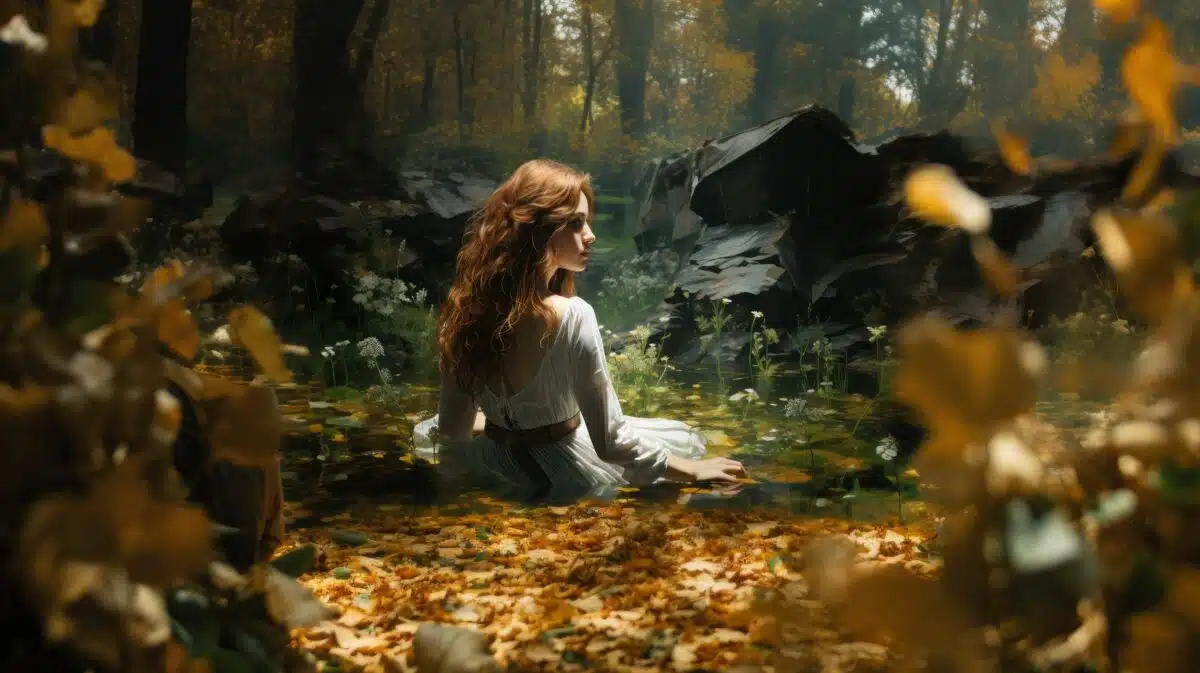
Arthur Rimbaud, the mysterious and exceptionally talented French poet of the 19th century, is widely praised for his ability to transport readers to imaginative and emotional realms through his powerful verses.
In his tragically short life, Rimbaud crafted a collection of poems that continue to captivate readers even today.
From his early works, such as “Le Bateau Ivre” (The Drunken Boat), where he sails through the seas of imagination, to the hauntingly beautiful “Les Illuminations” (The Illuminations), where he explores the boundaries of reality and dreams, each poem reveals a different facet of Rimbaud’s complex soul.
His poetry combines visionary insights, vivid symbolism, and unrestrained passion, encompassing three overarching themes that cover the entire range of human experience.
Join us as we unravel the mysteries and delve into the categorization of his most beloved poems, delving into themes of love, rebellion, and profound introspection.
Let’s get straight to it!
My #1 Favorite Poem by Arthur Rimbaud
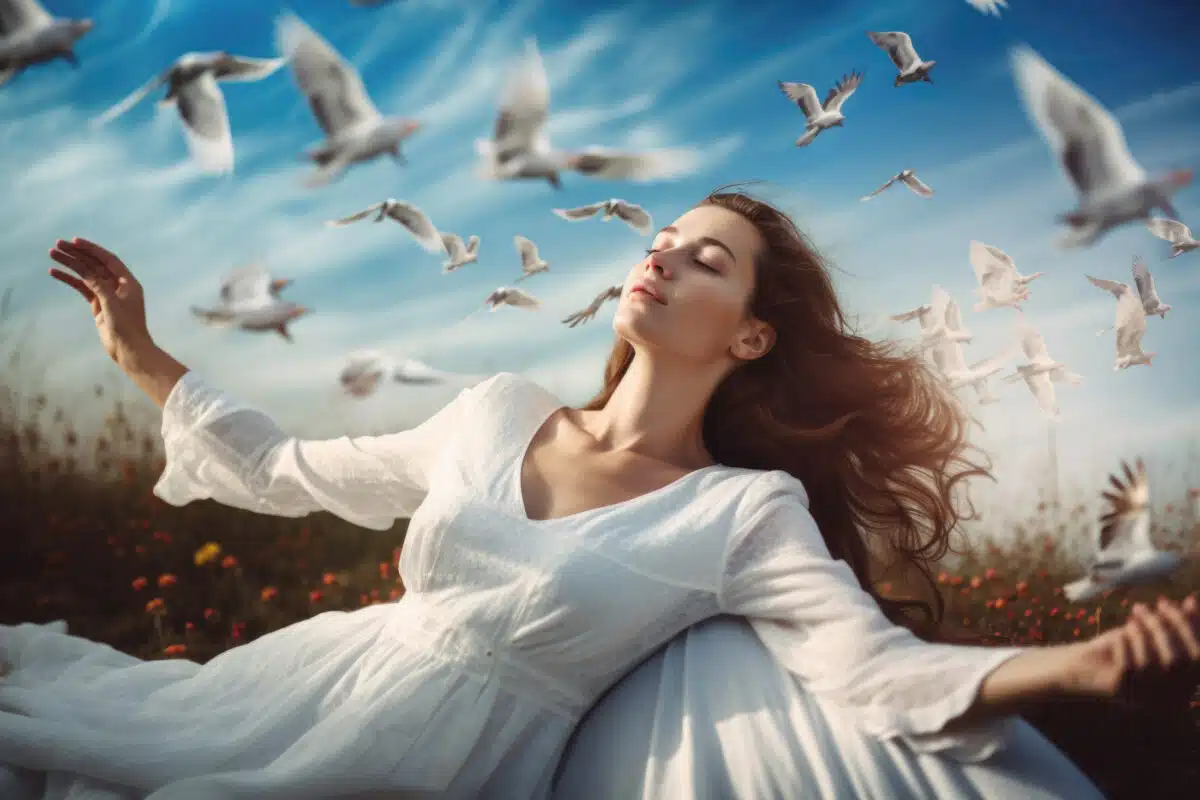
“Asleep In the Valley” by Arthur Rimbaud
There’s a green valley where a river sings
Madly catching silver bits of cloth
Where the sun, from the proud mountain,
Shines; it’s a small valley brimming with rays.
A young soldier, mouth open, head bare,
And the back of his neck rested in cool blue watercress,
Asleep; he’s stretched out in the grass, under the sky,
Pale in his green bed where the light rains down.
His feet among the gladioli, as he sleeps. Smiling
in his sleep as a sick child would:
Nature, cradle him warmly: he’s cold.
The scents don’t make his nostrils quiver;
He sleeps in the sun, a hand on his chest,
At peace. There are two red holes on his right side.
Why Is “Asleep In the Valley” My Favorite Poem by Arthur Rimbaud
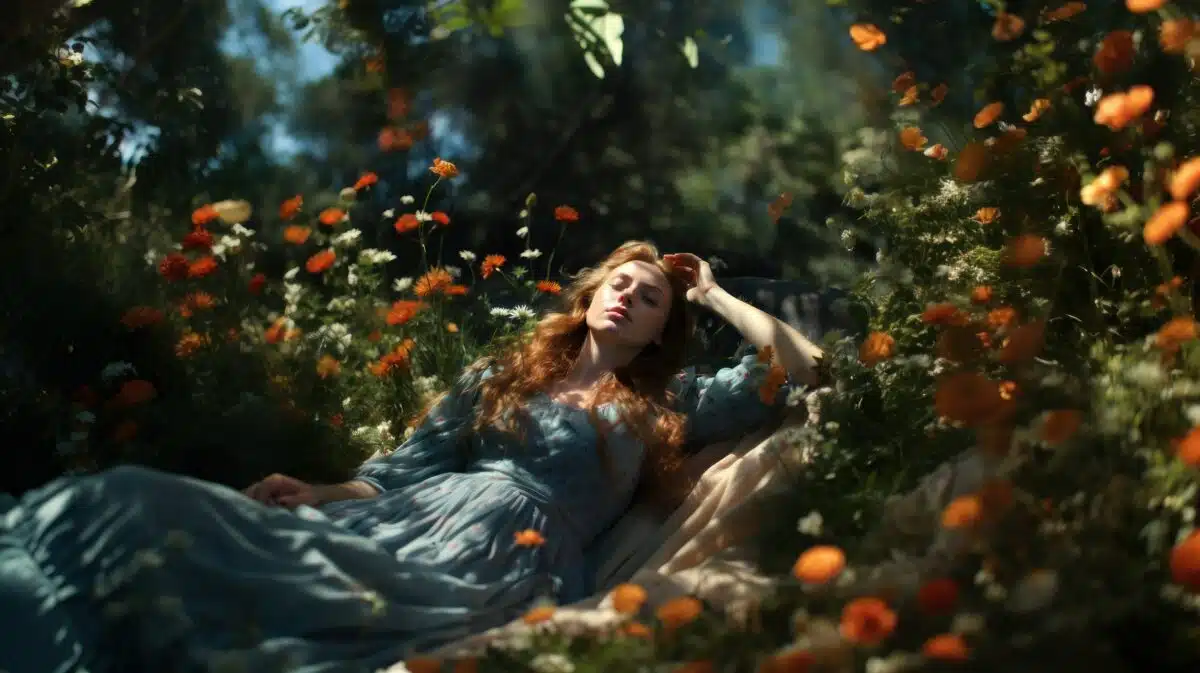
“Asleep in the Valley” is a tragic yet thought-provoking poetic tale that bewilders me with its deep symbolism, vivid imagery, and skillful use of contrasting elements and descriptive language.
Rimbaud transports me to a serene scene in a verdant and beautiful valley, where a young soldier rests, seemingly at peace.
It’s incredible how the author juxtaposes the tranquility of the surroundings and the harsh realities of war, reminding us of the fragile nature of life and the tragic consequences of conflict.
But what truly captures my attention is how Rimbaud depicts the soldier’s death in a positive light, conveying a sense of peace and fulfillment.
Through his words, Rimbaud invites us all to reflect not only on our mortality but also on how we can offer ourselves for the betterment of others and make this world a much better place.
Famous Poems by Arthur Rimbaud
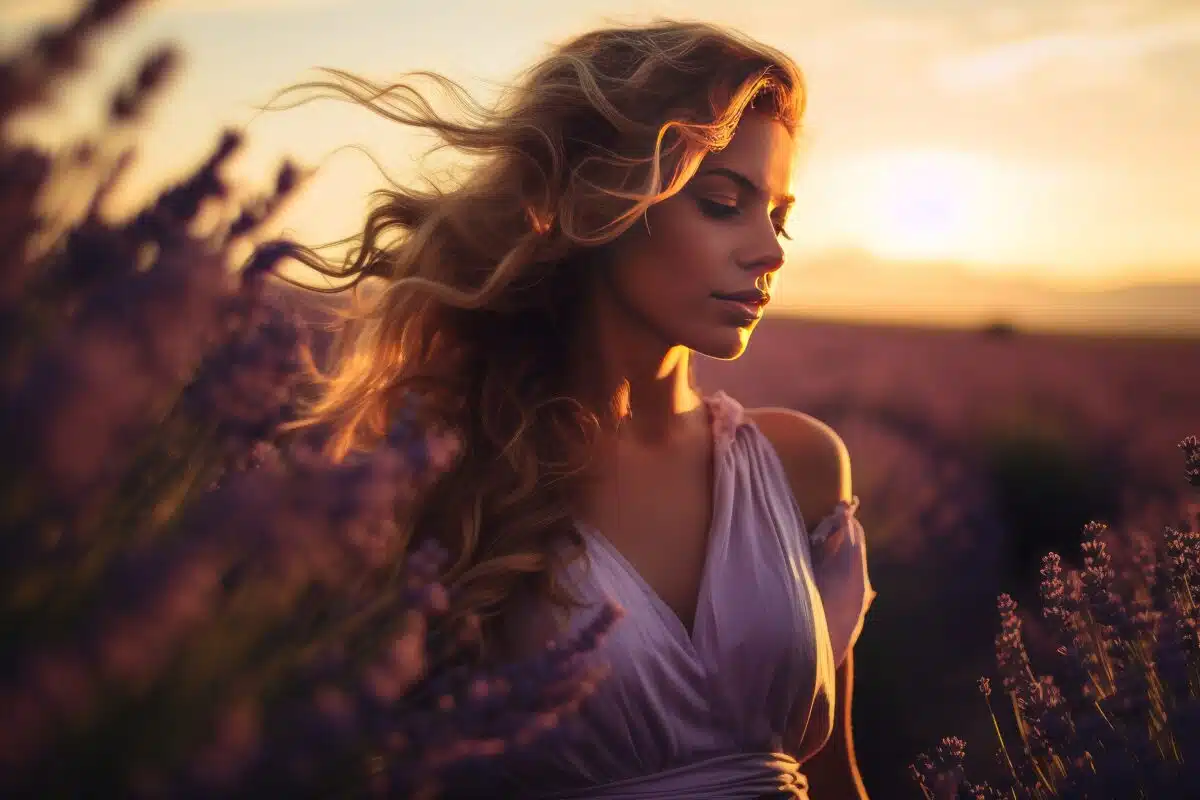
Step into the enchanting realm of Arthur Rimbaud’s most renowned poems, where words dance on the page and emotions ignite like sparks in the night sky.
With his vivid imagery and captivating language, Rimbaud weaves a tapestry of emotions that will transport you to a world where dreams and reality intertwine in the most mesmerizing ways.
“Vowels” by Arthur Rimbaud
A black, E white, I red, U green, O blue, vowels,
I will tell one day of your latent births:
A, black velvet bodice of shining flies
That buzz around cruel stenches,
Gulf of shadow: E, the candor of vapors and tents,
Lance of proud glaciers, white kings, quivers of umbels,
I, purple, spewed blood, laughter of beautiful lips
In anger or penitent ecstasies;
U, cycles, divine vibrations of viridescent seas,
Peace of pastures scattered with animals, peace of wrinkles
That alchemy impresses on great studious foreheads;
O, supreme Clarion filled with strange stridencies,
Silences crossed by Worlds and Angels:
—O Omega, violet ray of His Eyes!
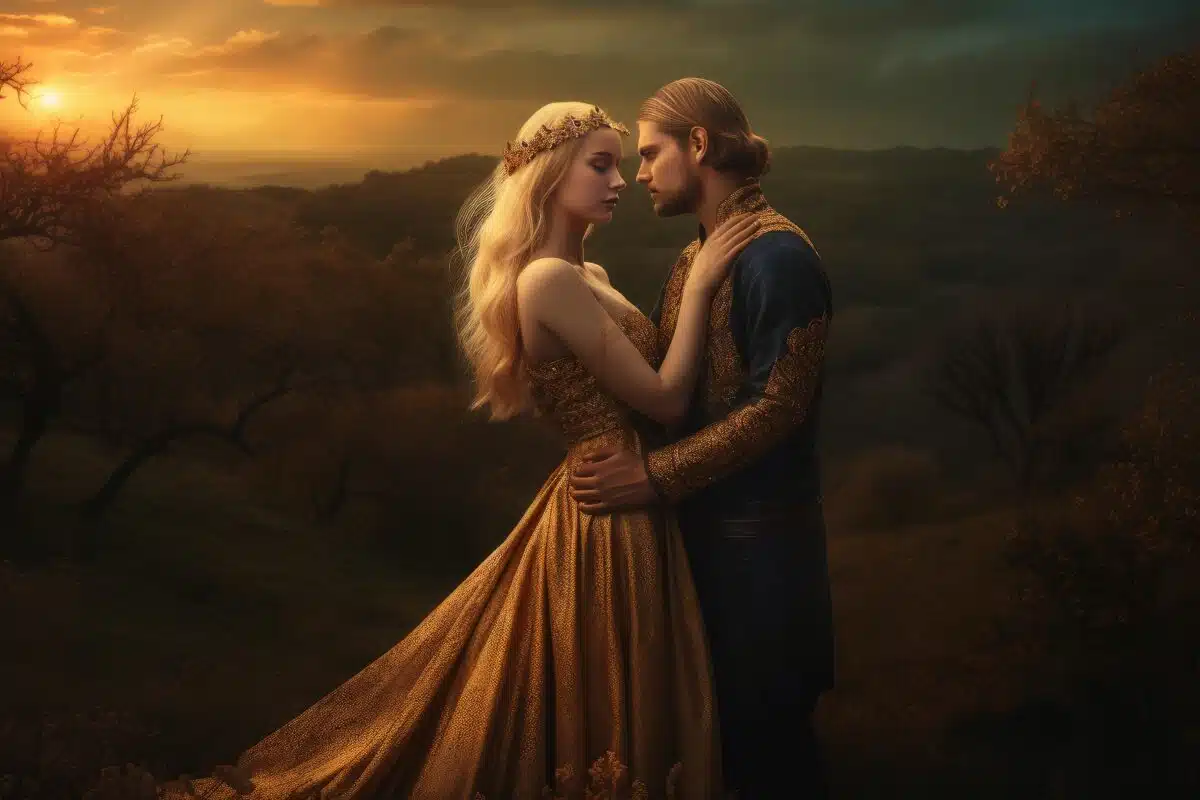
“Les Illuminations: Royalty” by Arthur Rimbaud
One beautiful morning, among a very gentle people, a man and a magnificent woman were shouting in the public square, ‘My friends, I want her to be queen!’ ‘I want to be queen!’ She laughed and trembled. He spoke to friends about revelation, of a completed trial. They swooned in each other’s arms. Indeed, they were kings for an entire morning, where crimson draperies were raised over the houses, and all afternoon, as they made their way toward the palm gardens.
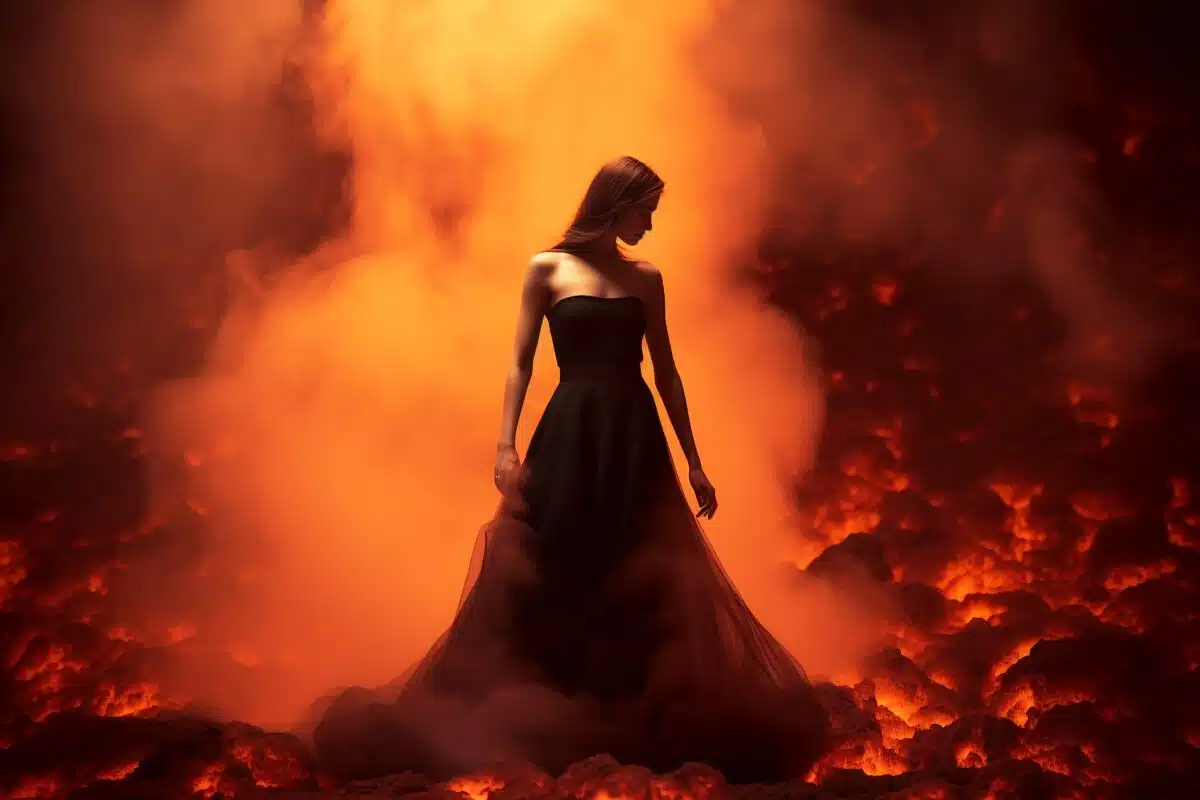
“Les Illuminations: Barbarian” by Arthur Rimbaud
Long after the days and seasons, and beings and lands,
The pavilion in bleeding meat on the silk of the
seas and arctic flowers (which do not exist).
Recovering from old heroism fanfares, — which still
attack our hearts and heads, — far from
the old assassins, —
Oh! the pavilion in bleeding meat on the silk of the
seas and arctic flowers (which do not exist).
Sweetness!
The braziers, raining in frosty gales. Sweetness! — These fires in the rain of diamond wind
thrown by the eternally carbonized earthly heart for us. — O world!
(Far from the old retreats and old flames,
that one hears, that one feels.)
The braziers and the foams. The music, the swirl
of chasms and the clash of ice against the stars.
O sweetness, O world, O music! And there, the shapes,
the sweats, the hair and the eyes, floating. And the
white, boiling tears, O sweetness! and the
feminine voice coming from the depths of volcanoes and arctic caves… The pavilion…
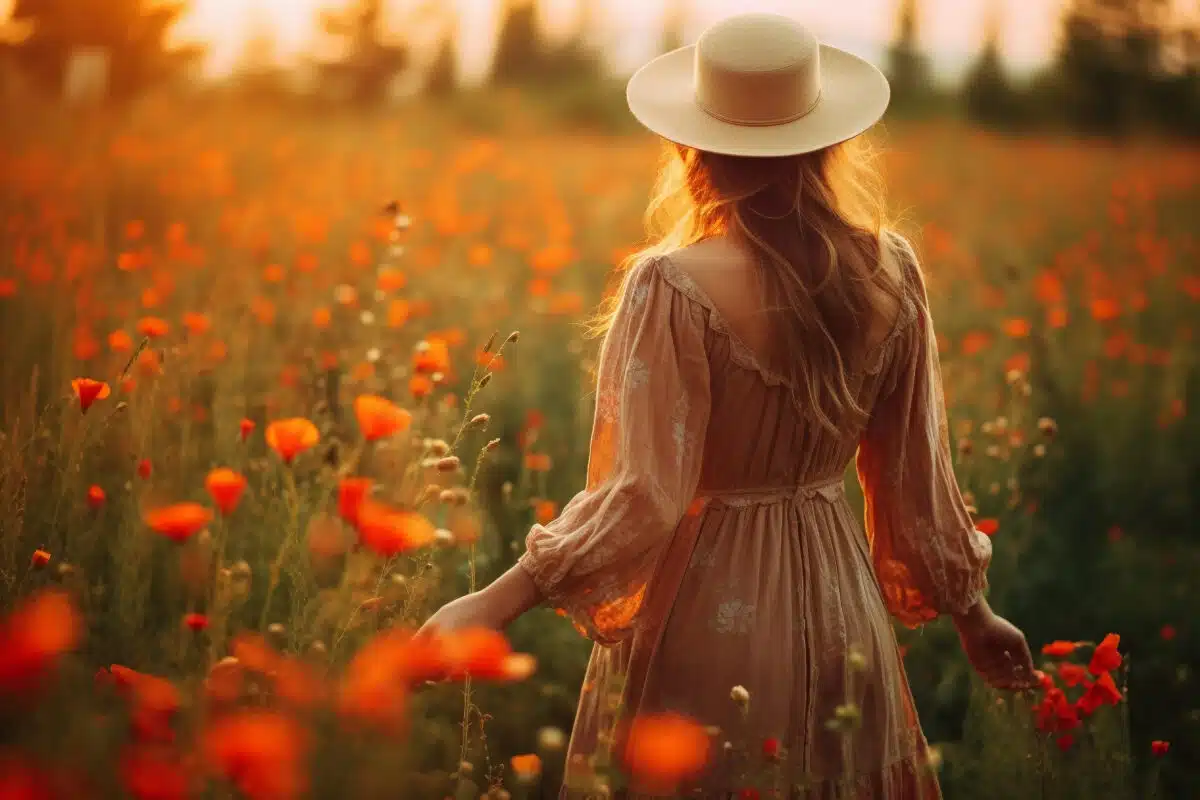
“Les Illuminations: Flowers” by Arthur Rimbaud
From a golden tier, amid silk cords, gray gauzes, green velvets, and crystal discs that darken like bronze in the sun, I see the foxglove opening on a carpet of silver filigrees, eyes, and hair.
Gold pieces scattered on the agate, mahogany pillars supporting a dome of emeralds, bouquets of white satin and delicate rods of rubies surround the water rose.
Like a god with enormous blue eyes and snow-white forms, the sea and the sky draw the crowd of young and strong roses to the marble terraces.”
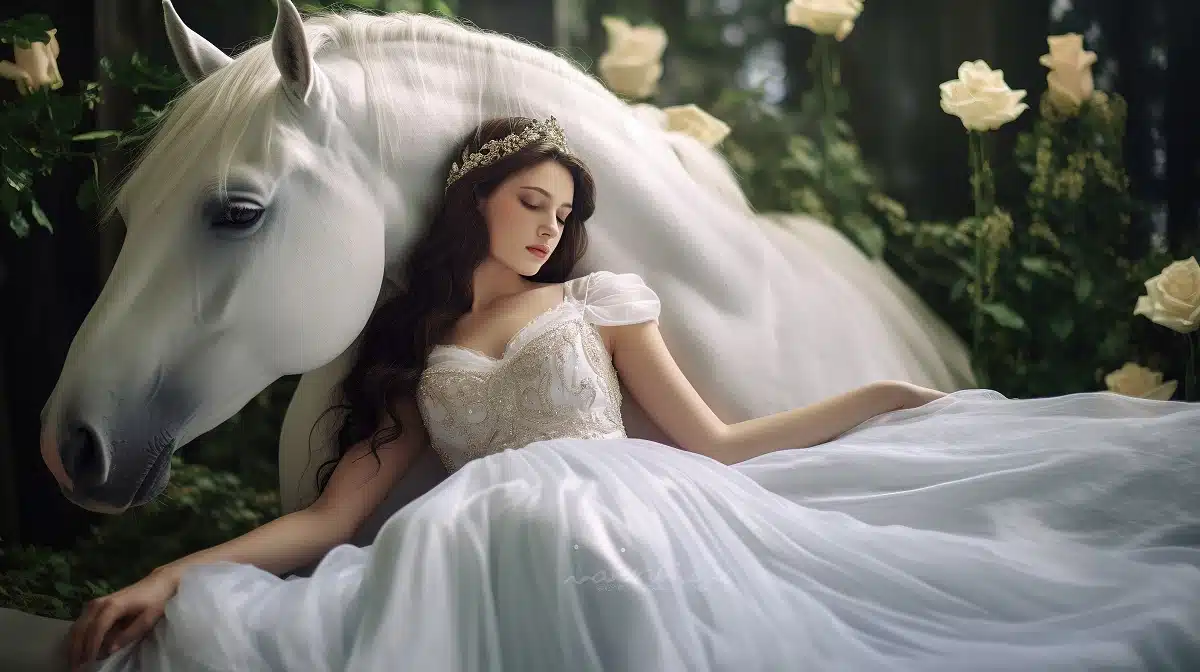
“Les Illuminations: Ruts” by Arthur Rimbaud
To the right, the summer dawn awakens the leaves and the mists and the sounds of this corner of the park, while the violet shadows of the left embankments hold the thousand swift ruts of the wet road in their shade. A procession of wonders. Indeed, there are carts loaded with golden wooden animals, masts, and colorful canvases, galloping at full speed with twenty spotted circus horses, and children and men riding their most astonishing beasts. Twenty vehicles, embossed, adorned, and decorated like ancient carriages or from fairy tales, filled with children dressed for a suburban pastoral. Even coffins under their canopy of night, raising ebony plumes, speeding along behind the trot of big blue and black mares.”
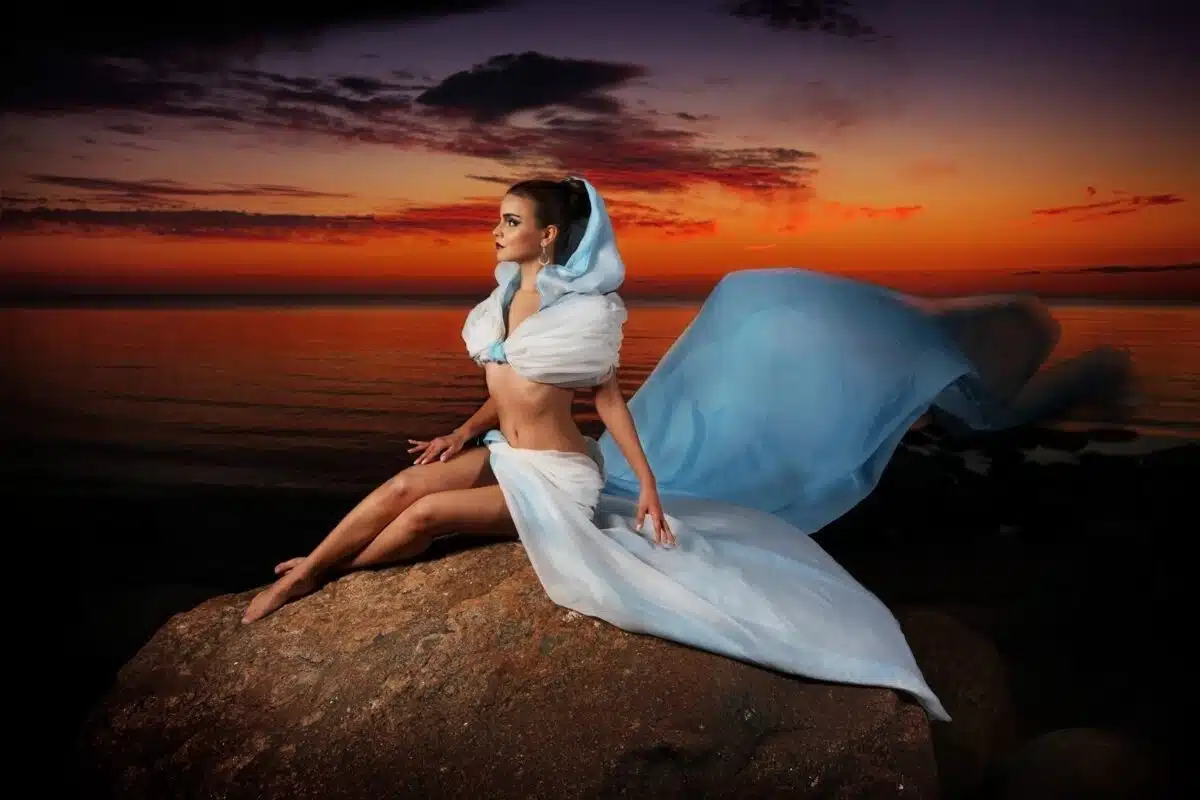
“Les Illuminations: The Sea” by Arthur Rimbaud
The silver and copper chariots,
The bows of steel and silver,
Beat the foam,
Lift the stumps of brambles.
The currents of the heath,
And the immense ruts of the ebb tide,
Circle eastward,
Towards the pillars of the forest,
Towards the piers of the jetty,
Whose corner is struck by whirlwinds of light.
The waterfall sounds behind the operatic huts. Chandeliers extend into the orchards and alleys near the meander, — the greens and reds of the sunset. Horace’s nymphs with First Empire headdresses, — Siberian rounds, Boucher’s Chinese.”
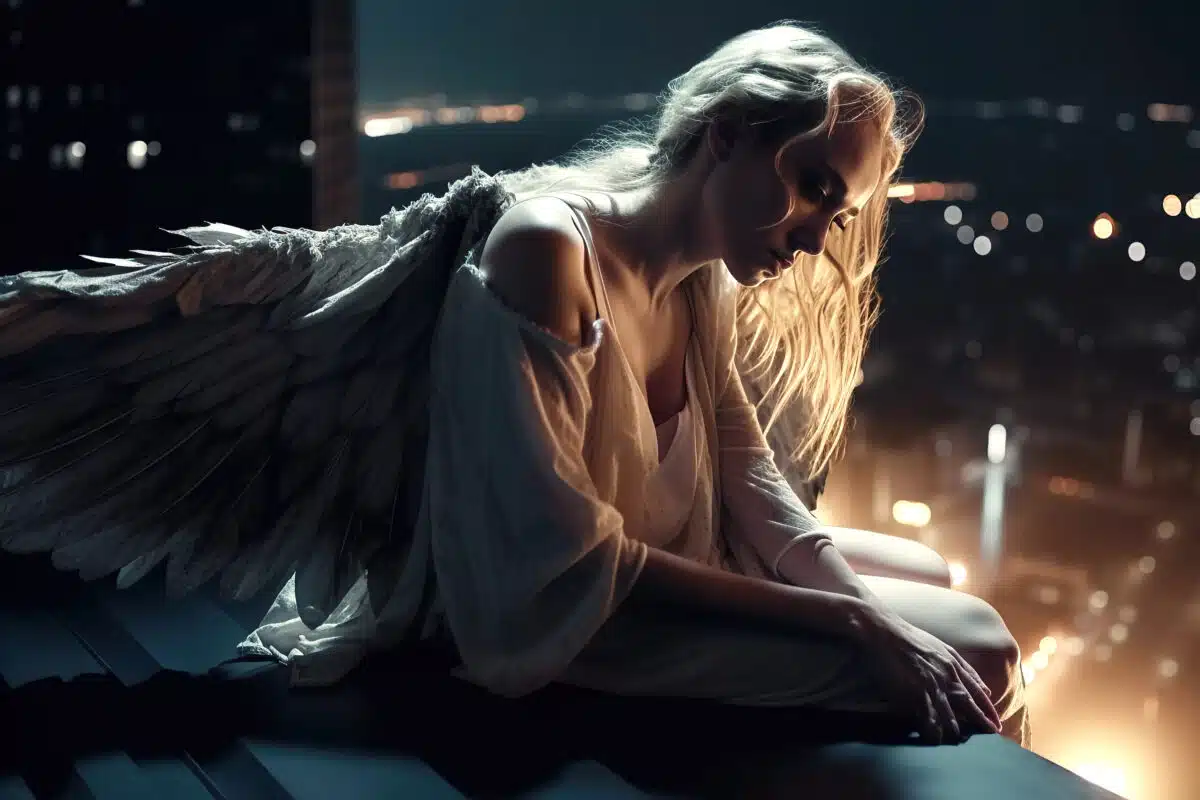
“Les Illuminations: City” by Arthur Rimbaud
I am an ephemeral and not too discontented citizen of what is considered a modern metropolis, because all known taste has been avoided in the furnishings and exteriors of houses, as well as in the city’s layout. Here, you would not find traces of any monument of superstition. Morality and language have been reduced to their simplest expression, finally! These millions of people who don’t need to know each other bring education, profession, and old age so similarly that this course of life must be several times shorter than what a crazy statistic finds for the peoples of the Continent. Also, from my window, I see new specters rolling through the thick and eternal coal smoke, our shadow of the woods, our summer night! new Erynies, in front of my cottage, which is my homeland and all my heart since everything here resembles this: Death without tears, our active daughter and servant, a desperate Love, and a pretty Crime squealing in the street mud.”
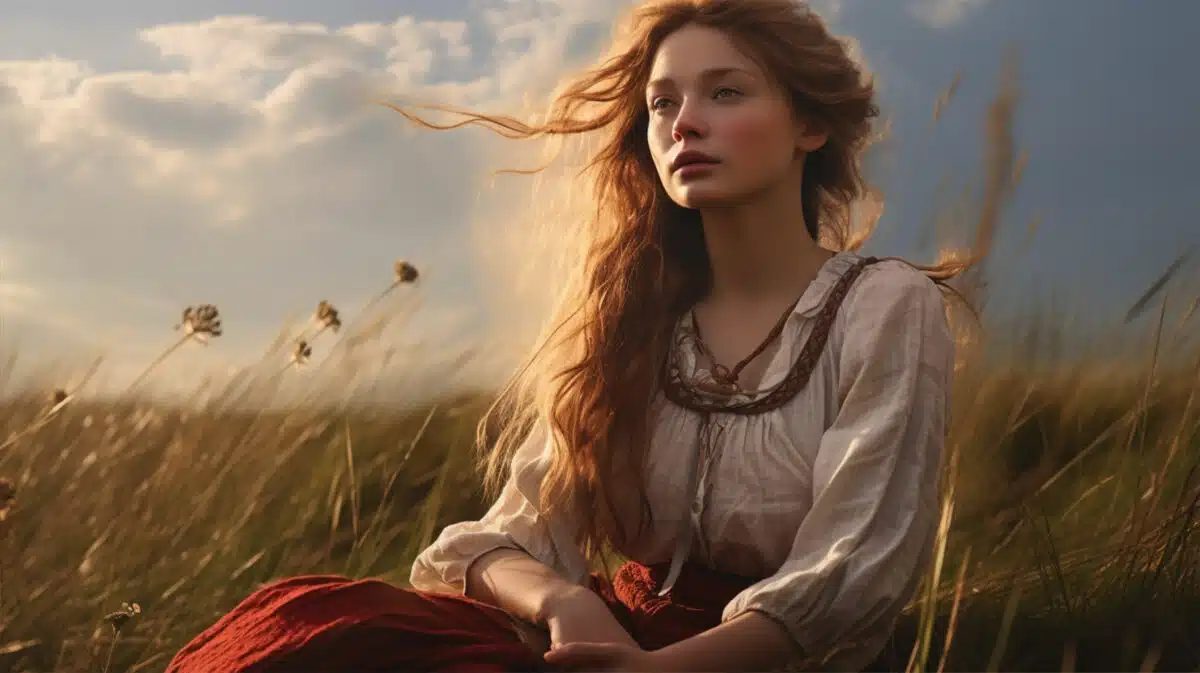
“Les Illuminations: Scenes” by Arthur Rimbaud
The old Comedy continues its harmonies and divides
its idylls:
From the boulevards of makeshift stages.
A long wooden pier from one end to the other of a
rocky field where the barbaric crowd moves under the
bare trees.
In corridors of black gauze, following the steps
of strollers with lanterns and leaves.
Comedian birds land on a masonry pontoon
moved by the archipelago covered with the spectators’ boats.
Lyric scenes, accompanied by flute and drum,
bend in alcoves created on the ceilings around modern club lounges or rooms from ancient Orient.
The enchantment maneuvers at the top of an amphitheater
crowned with thickets, — where it agitates and modulates for
the Boeotians, in the shadow of shifting groves, on
the edge of the fields.
The comic opera divides on our stage at the intersection
of ten partitions raised from the gallery to the lights.”
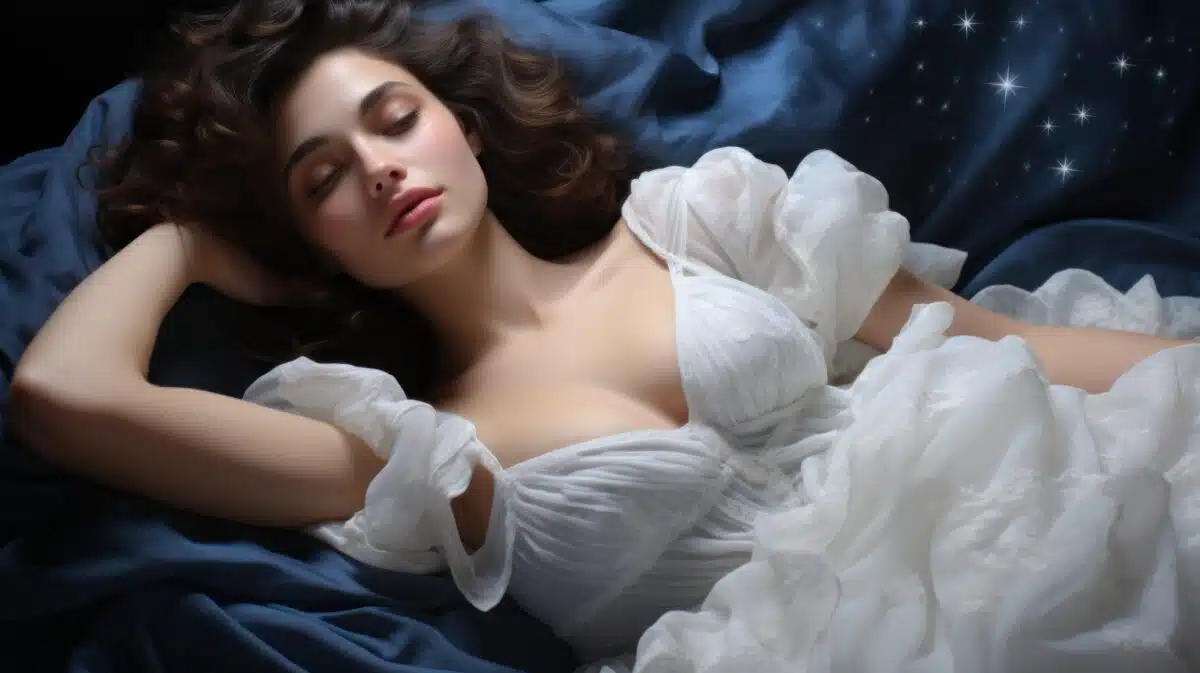
“Les Illuminations: Gone” by Arthur Rimbaud
Seen enough. The vision has crossed all the airs.
Had enough. The city’s murmurs, in the evening, and in the sun,
and always.
Known enough. The stops of life. — O Rumors
and Visions!
Departure in new affection and noise!”
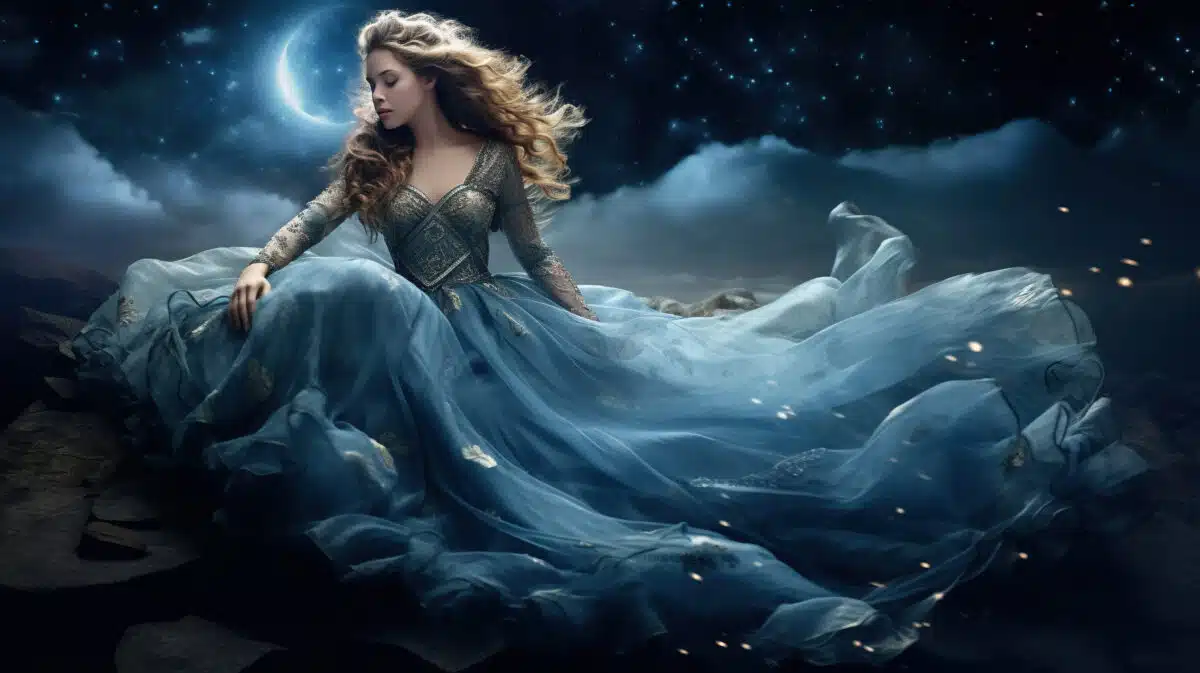
“Les Illuminations: Bottom” by Arthur Rimbaud
Reality being too thorny for my grand character, I nonetheless found myself at my lady’s, a large gray-blue bird soaring towards the ceiling moldings and trailing its wing in the evening shadows.
I stood at the foot of the canopy supporting her beloved jewels and physical masterpieces, a large bear with violet gums and fur of sorrowful gray, eyes like crystals and silvers of the consoles.
Everything turned into shadow and fervent aquarium. In the morning, — a bellicose June dawn, I ran to the fields, a donkey, trumpeting and brandishing my grievance, until the Sabines from the suburbs came to throw themselves at my breast.”
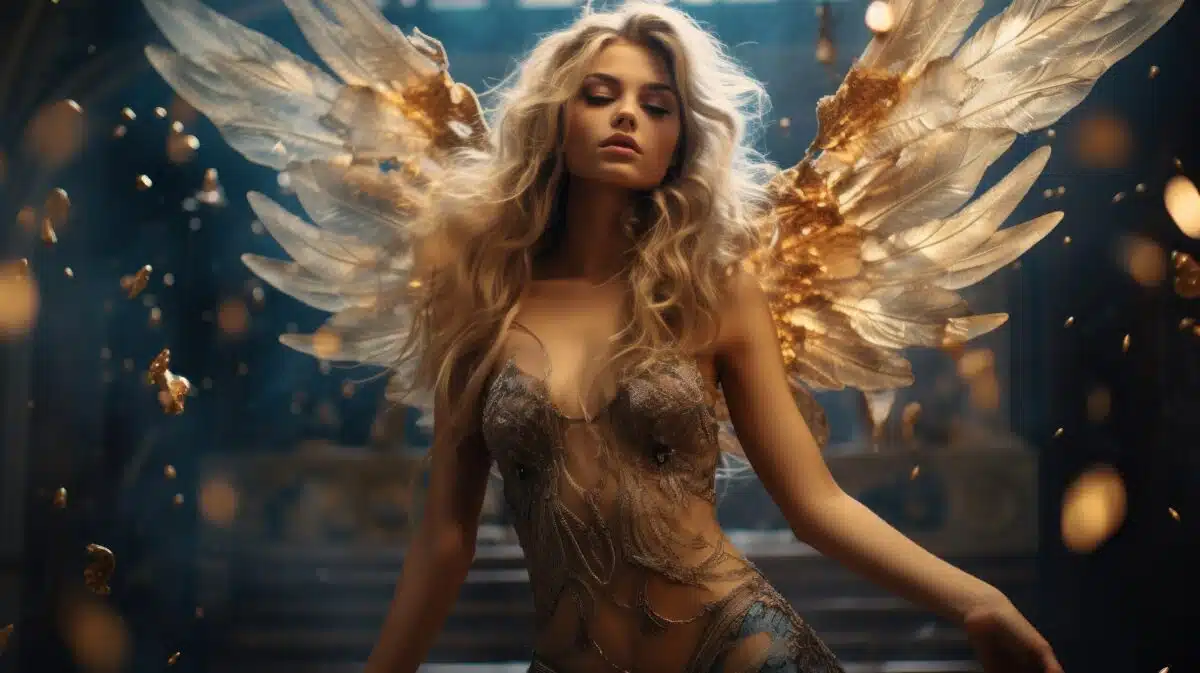
“Les Illuminations: To a Reason” by Arthur Rimbaud
A tap of your finger on the drum releases
all the sounds and begins the new harmony.
One step from you, it’s the rise of new men
and their march forward.
Your head turns away: new love! Your head
turns back, new love!
“Change our lots, sift the scourges, starting
with time,” these children sing to you. “Raise
anywhere the substance of our fortunes and our
wishes,” they implore you.
Always arriving, you will go everywhere.”
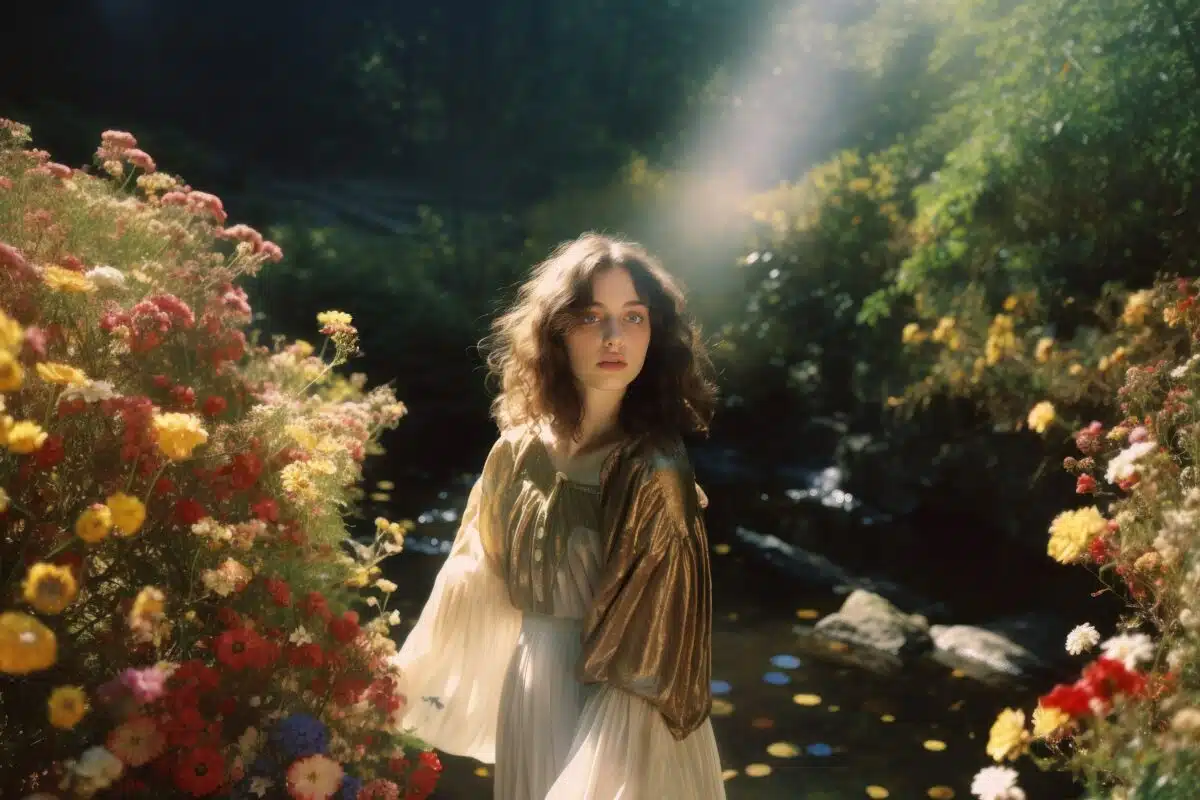
“Les Illuminations: H” by Arthur Rimbaud
All monstrosities violate Hortense’s atrocious gestures. Her solitude is erotic mechanics; her weariness, amorous dynamics. Under the watchful eye of childhood, she has been, at many times, the ardent hygiene of races. Her door is open to misery. There, the morality of present beings disintegrates into her passion or her action. O terrible shiver of novice loves on the bloody ground and in the bright hydrogen! find Hortense.”
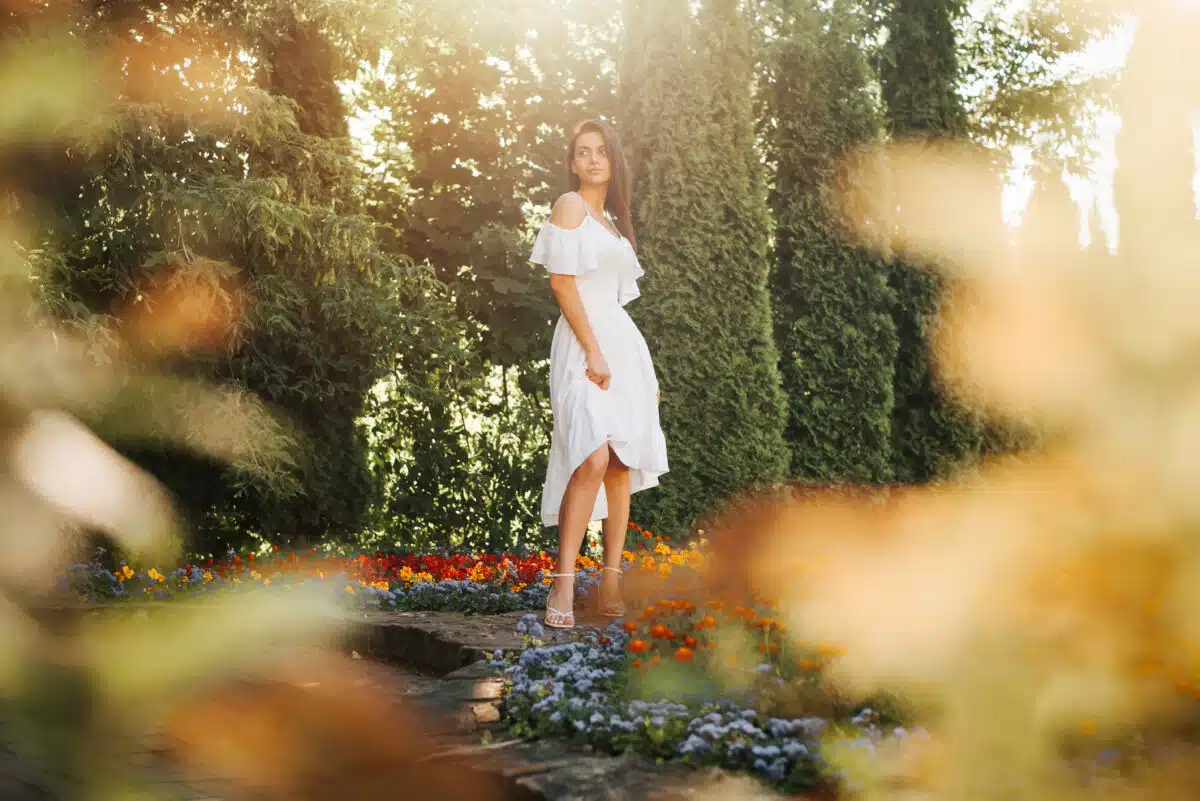
“Les Illuminations: Brussels” by Arthur Rimbaud
Amaranth flowerbeds extend to
The delightful palace of Jupiter.
-I know it’s You who, in these places,
Mix your Blue almost like the Sahara!
Then, like rose and sun-fir
And vine have their enclosed games here,
Cage of the little widow!…
What
Flocks of birds, oh ia io, ia io! …
— Quiet houses, ancient passions!
Kiosk of the Madwoman out of affection,
After the buttocks of roses, a shady
Balcony of Juliette.
— Juliette, it reminds me of Henriette,
Charming station of the railway,
In the heart of a mountain, as in the depths of an orchard
Where a thousand blue devils dance in the air!
Green bench where, in the paradise of the storm,
The white Irishwoman sings on the guitar,
Then, from the Guyanese dining room,
Chatter of children and cages.
Duke’s window that makes me think
Of snails’ poison and boxwood
That sleeps down here in the sun.
And then
It’s too beautiful! Too! Let’s keep our silence.
— Boulevard without movement or commerce,
Silent, all drama and all comedy,
Infinite scenes meeting,
I know you and admire you in silence.
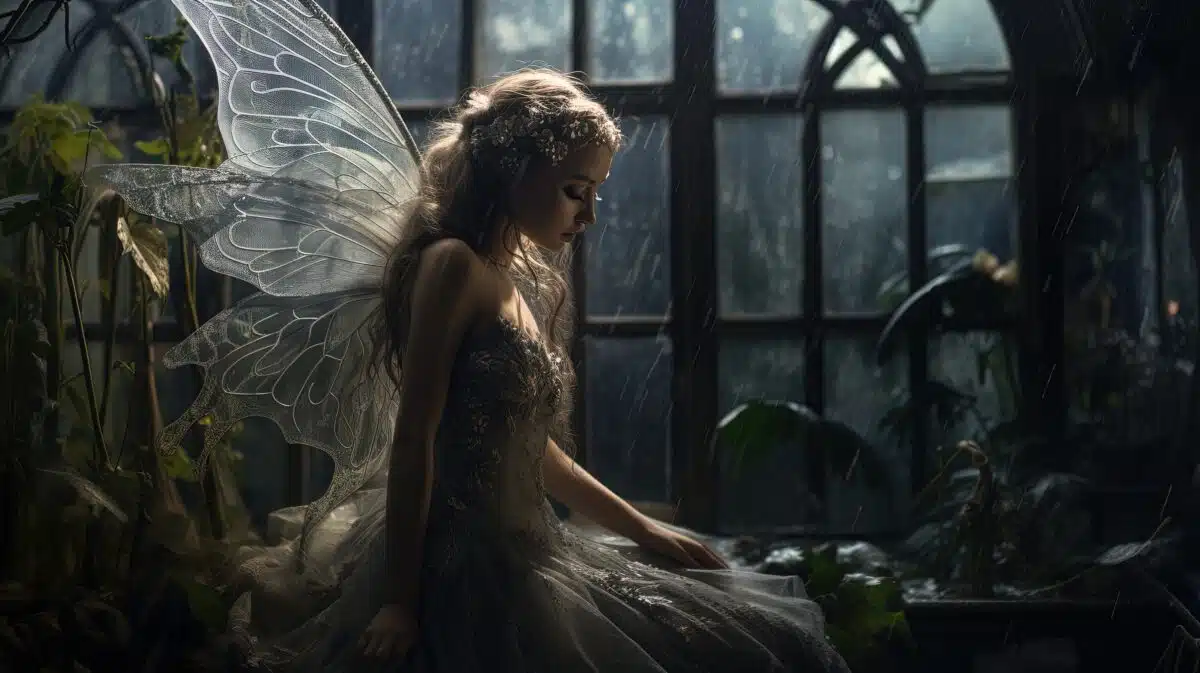
“Les Illuminations: Mystique” by Arthur Rimbaud
Upon the slope of the embankment, the angels twirl their woolen robes in the steel and emerald meadows. Fields of flames leap to the top of the hill. On the left, the soil of the ridge is trampled by all the homicides and all the battles, and all the disastrous noises trace their curve. Behind the right ridge, the line of orientations, of progress.
And while the band at the top of the painting is formed by the swirling and leaping clamor of seashells and human nights, the flowery sweetness of the stars, and the sky, and the rest descends in front of the embankment, like a basket against our face, creating the fragrant and blue abyss below.
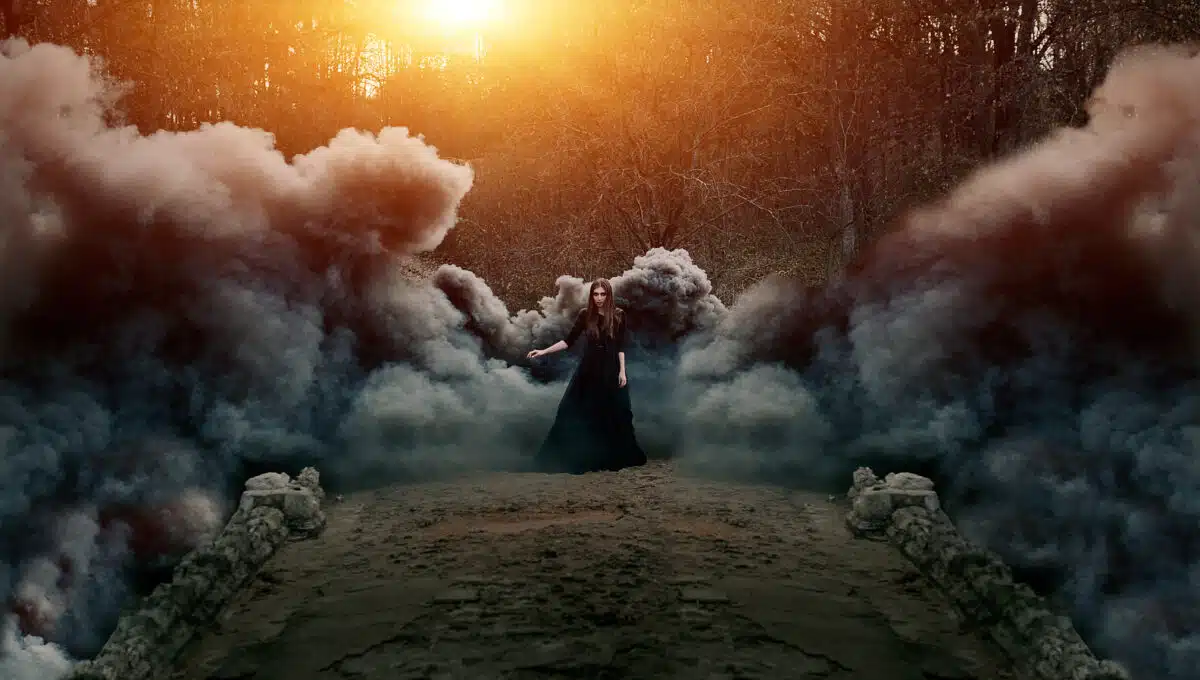
“A Season In Hell: Morning” by Arthur Rimbaud
Did I not once have a lovely, heroic, fabulous youth, to write on sheets of gold—too fortunate! By what crime, by what error, did I deserve my present weakness? You who claim that animals emit sorrowful sobs, that the sick despair, that the dead dream poorly, try to narrate my fall and my sleep. I, I can no more explain it than the beggar with his continuous Pater and Ave Maria. I no longer know how to speak!
Yet, today, I believe I have finished the account of my hell. It was indeed hell; the old one, the one the Son of Man opened the gates to.
From the same desert, in the same night, my weary eyes always awaken to the silver star, always, without stirring the Kings of life, the three magi, the heart, the soul, the spirit. When will we go, beyond the shores and mountains, to greet the birth of the new labor, the new wisdom, the flight of tyrants and demons, the end of superstition, to adore—the first!—Christmas on earth!
The song of the heavens, the march of peoples! Slaves, let us not curse life.
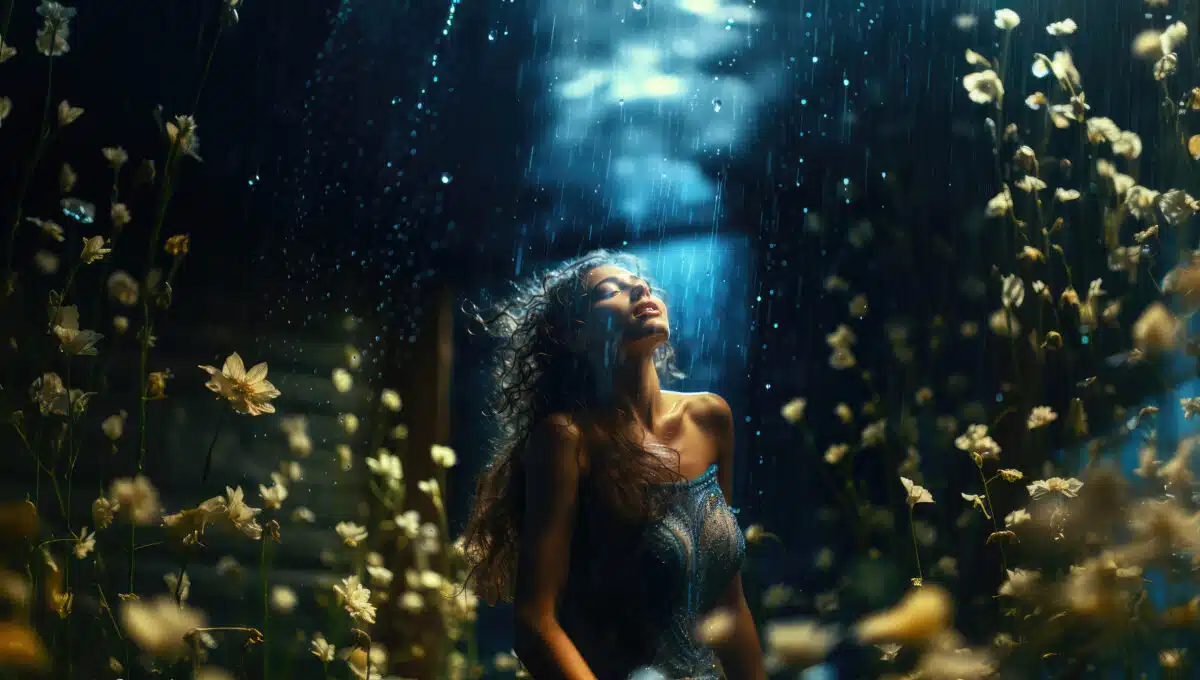
“A Season In Hell: The Lightning” by Arthur Rimbaud
The Human Toil! It’s the explosion that occasionally illuminates my abyss.
“Nothing is in vain; towards knowledge, and onwards!” cries the modern Ecclesiastes, meaning Everyone. And yet, the corpses of the wicked and the lazy fall on the hearts of others… Ah! Quickly, quickly a bit; there, beyond the night, those future, eternal rewards… Are we escaping them?…
—What can I do? I know work; and science is too slow. Let prayer gallop and let the light roar… I see it clearly. It’s too simple, and it’s too hot; they can do without me. I have my duty, I’ll be proud of it like many others, by putting it aside.
My life is worn out. Come on! Let’s pretend, let’s be lazy, oh mercy! And we’ll exist by amusing ourselves, by dreaming of monstrous loves and fantastic universes, by complaining and quarreling with the appearances of the world, a juggler, a beggar, an artist, a bandit—a priest! In my hospital bed, the scent of incense has returned to me so powerfully; guardian of sacred aromatics, confessor, martyr…
I recognize my dirty childhood education there. So what!… If the others go for twenty years, let my twenties go too…
No! no! now I revolt against death! Work seems too light for my pride: my betrayal of the world would be too short a torment. At the last moment, I would attack right and left…
Then,—oh!—dear poor soul, wouldn’t eternity be lost for us!
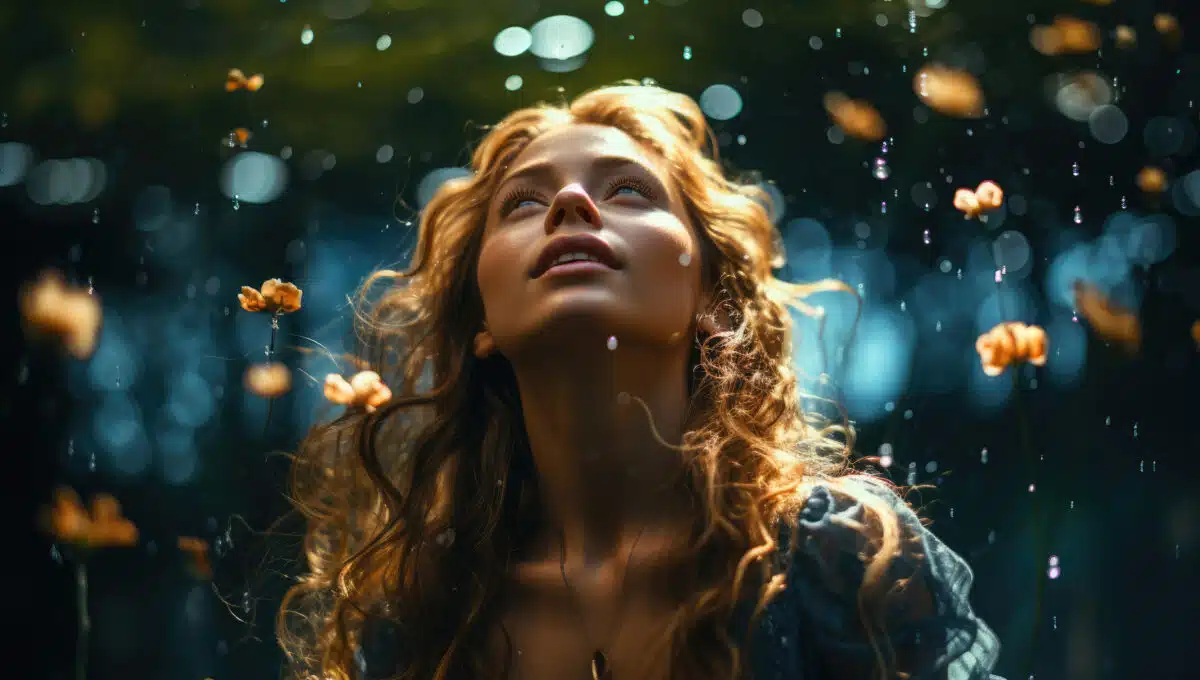
“A Season In Hell: Song Of The Highest Tower” by Arthur Rimbaud
Let it come, let it come,
The time one falls in love with.
I’ve waited so patiently
That I forget forever.
Fears and sufferings
Have departed to the skies.
And the unhealthy thirst
Darkens my veins.
Let it come, let it come,
The time one falls in love with.
Like the meadow
Given to oblivion,
Grown, and blooming
With incense and weeds,
With the wild drone
Of dirty flies.
Let it come, let it come,
The time one falls in love with.
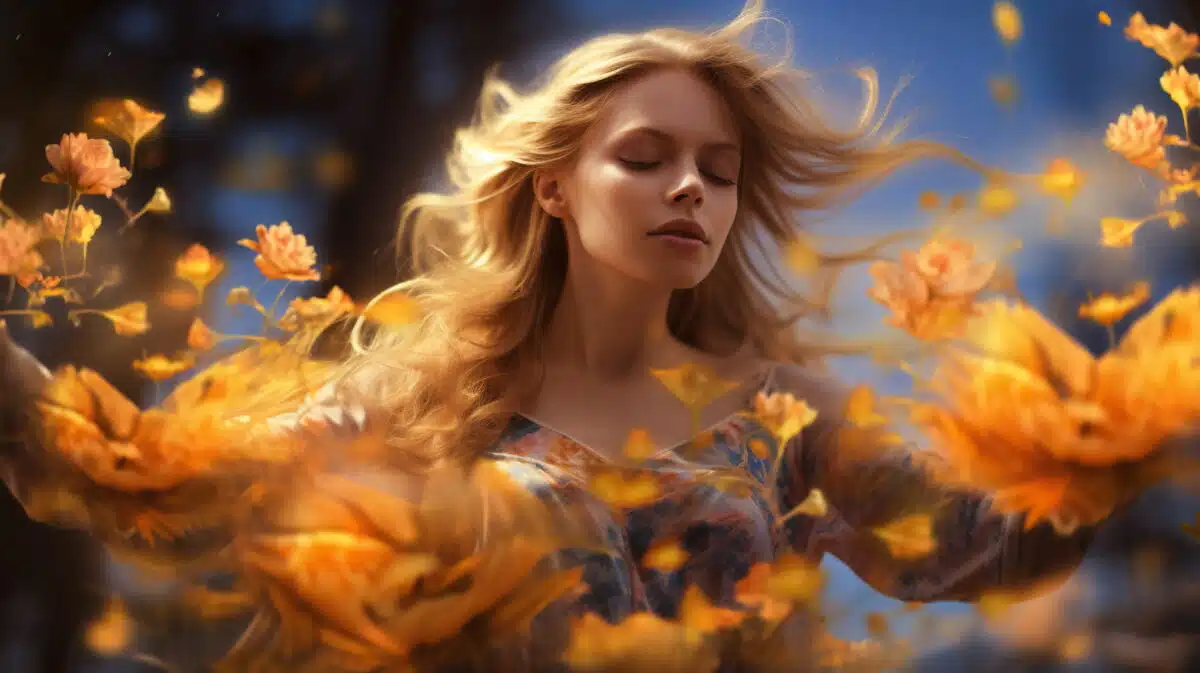
“A Season In Hell: Farewell” by Arthur Rembaud
Autumn already! But why regret an eternal sun if we are committed to the discovery of divine clarity, far from those who perish with the seasons?
Autumn. Our boat, high in the motionless mists, turns toward the port of misery, the enormous city with a sky stained with fire and mud. Ah! The rotting rags, bread soaked in rain, drunkenness, the thousand loves that crucified me! Will this queen ghoul of millions of souls and dead bodies never end! I see myself again, skin gnawed by mud and plague, worms in my hair and armpits, and even larger worms in my heart, lying among ageless, soulless strangers… I could have died there… The dreadful recollection! I detest poverty.
And I dread winter because it’s the season of comfort!
Sometimes I see endless beaches in the sky, covered with joyful white nations. A great golden ship above me waves its multicolored flags in the morning breezes. I created all the feasts, all the triumphs, all the dramas. I tried to invent new flowers, new stars, new flesh, new languages. I believed I had acquired supernatural powers. Well then! I must bury my imagination and my memories! A beautiful glory of an artist and storyteller swept away!
Me! Me, who called myself a mage or an angel, exempt from all morality, I am returned to the earth, with a duty to seek, and the harsh reality to embrace! A peasant!
Am I deceived? Is charity, for me, a sister of death?
Finally, I will ask for forgiveness for having nourished myself with lies. And let’s go.
But not a friendly hand! And where to find help?
Yes, the new hour is at least very severe.
For I can say that victory is mine: the gnashing of teeth, the hissing of fire, the foul sighs are subdued. All vile memories are fading away. My last regrets scamper away—jealousies for beggars, brigands, friends of death, all sorts of stragglers. Damned if I were to take revenge!
We must be absolutely modern.
No hymns: maintain the gained ground. Harsh night! Dried blood steams on my face, and I have nothing behind me but this horrible shrub!… The spiritual battle is as brutal as the battle of men; but the vision of justice is God’s pleasure alone.
Yet it is the eve. Let us receive all the influxes of strength and true tenderness. And at dawn, armed with ardent patience, we will enter the splendid cities.
Why did I speak of a friendly hand! A great advantage is that I can laugh at old false loves and shame those lying couples—I saw the hell of women over there;—and it will be allowed me to possess truth in a soul and a body.
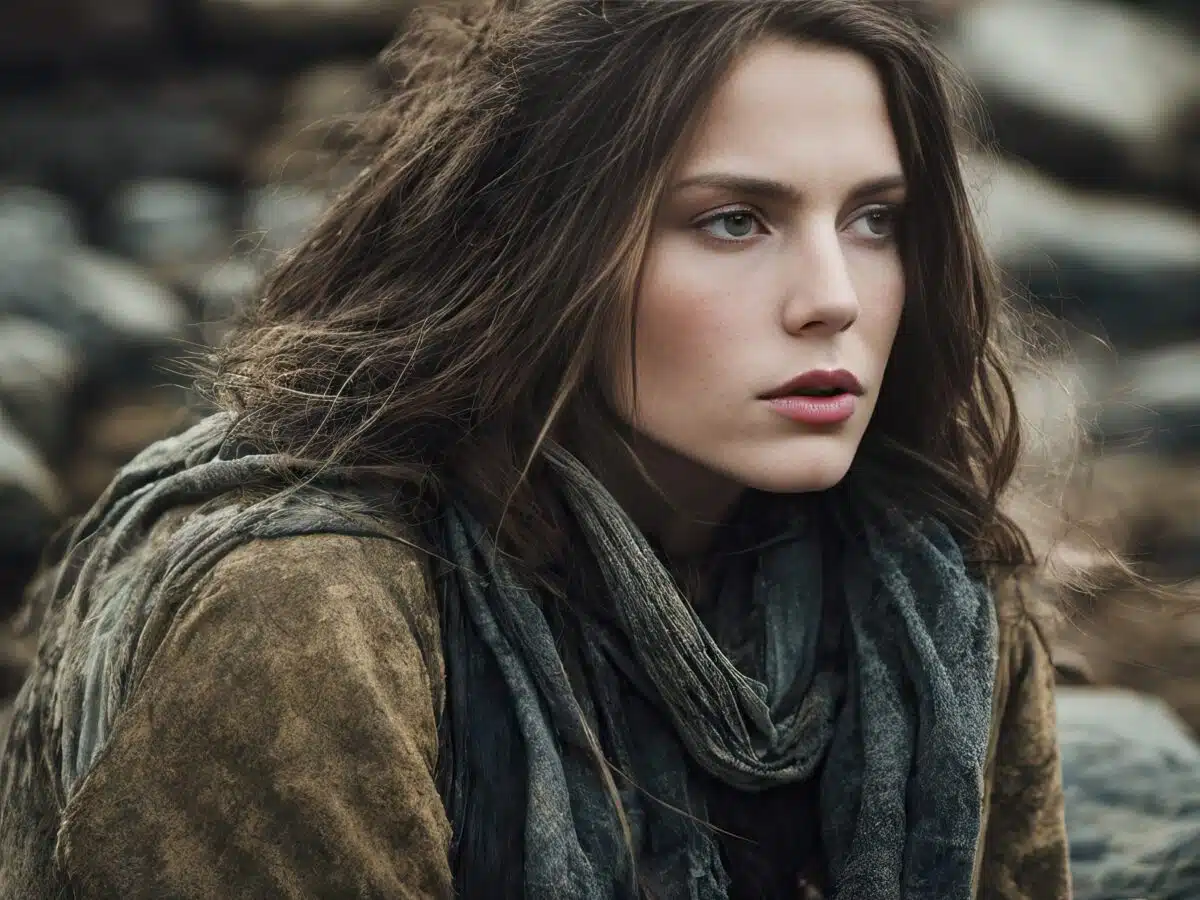
“Waifs And Strays” by Arthur Rimbaud
Black in the fog and in the snow,
Where the great air-hole windows glow,
With rounded rumps,
Upon their knees five urchins squat,
Looking down where the baker, hot,
The thick dough thumps.
They watch his white arm turn the bread,
Ere through an opening flaming red
The loaf he flings.
They hear the good bread baking, while
The chubby baker with a smile
An old tune sings.
Breathing the warmth into their soul ,
They squat around the red air-hole,
As a breast warm.
And when, for feasters’ midnight bout,
The ready bread is taken out,
In a cake’s form;
And while beneath the blackened beams,
Sings every crust of golden gleams,
While the cricket brags,
The hole breathes warmth into the night,
And into them life and delight,
Under their rags,
And the urchins covered with hoar-frost,
On billows of enchantment tossed
Their little souls,
Glue to the grate their little rosy
Noses, singing through the cosy
Glowing holes,
But with low voices like a prayer,
Bending down to the light down there,
Where heaven gleams.
So eager that they burst their breeches,
And in the winter wind that screeches
Their linen streams.
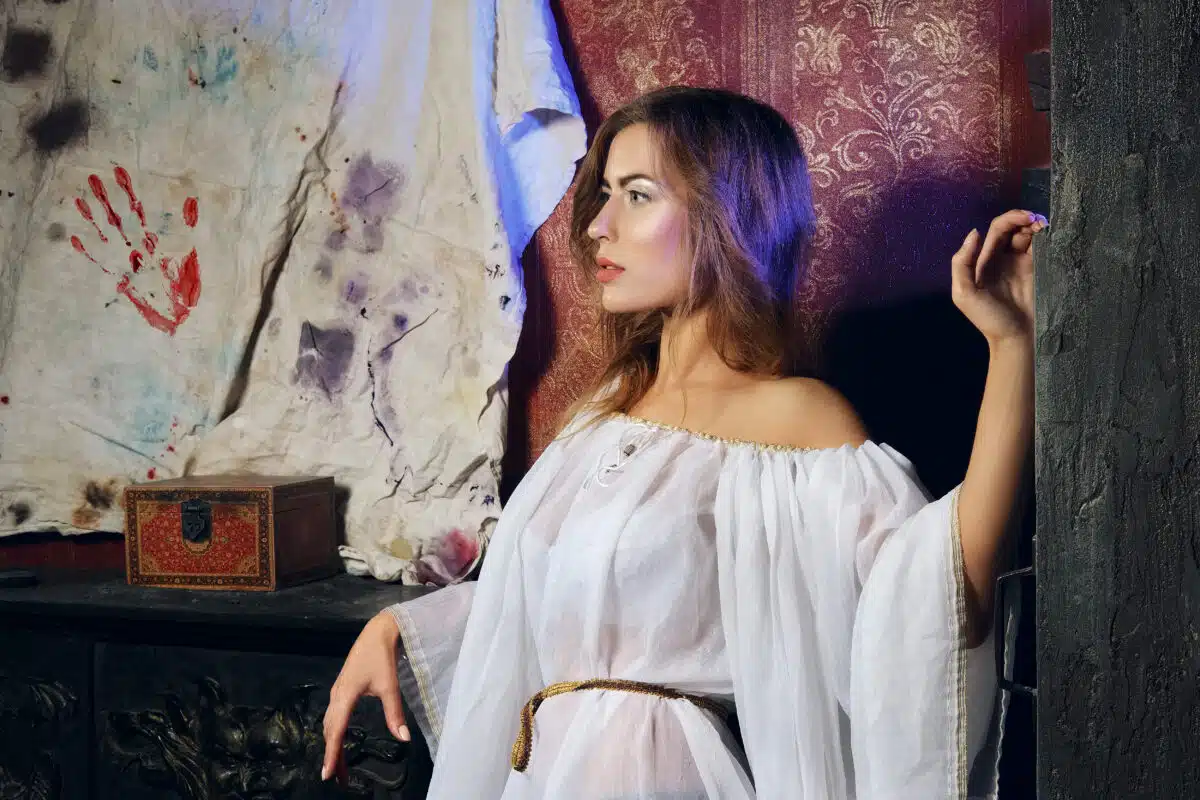
“Lost Poison” by Arthur Rimbaud
From nights of blond and brown,
Not a memory remains;
Not a summer lace,
Not a common necktie.
And on the balcony, where tea
Is taken in the moonlight hours,
Not a trace remains,
Not a memory remains,
Pierced into the edge of a blue curtain,
Shines a golden-headed pin
Like a large sleeping insect,
Tip of a fine poison dipped,
I take you, be ready for me
In the hours of desires for death.
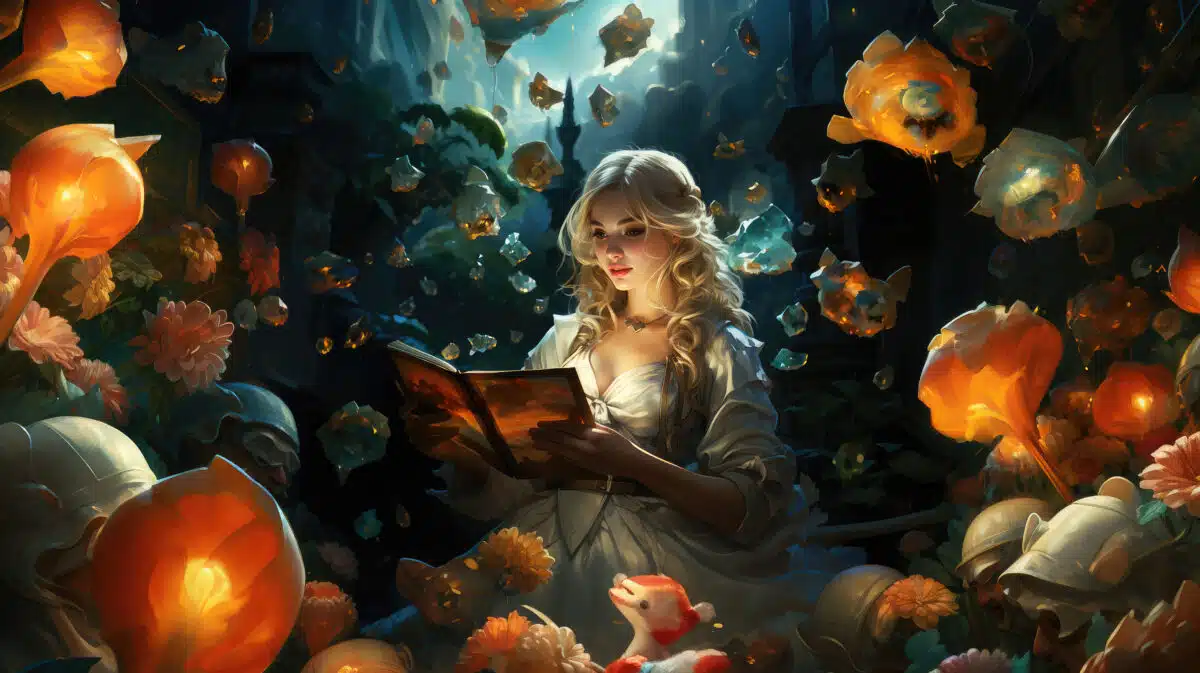
“My Bohemian Life (Fantasy)” by Arthur Rimbaud
I used to walk with my hands in my tattered pockets;
My overcoat, too, became ideal;
I walked under the sky, Muse! and I was your loyal servant;
Oh! oh! how splendid loves I dreamed of!
My only pair of pants had a big hole.
—Dreamy Little Thumb, I scattered rhymes in my path.
My inn was in the Great Bear;
—My stars in the sky had a sweet rustling sound.
And I listened to them, sitting on the roadside,
Those good September evenings when I felt drops
Of dew on my forehead, like a strengthening wine;
Where, rhyming amidst fantastic shadows,
Like lyres, I pulled the elastic bands
Of my wounded shoes, one foot close to my heart!
Love Poems by Arthur Rimbaud
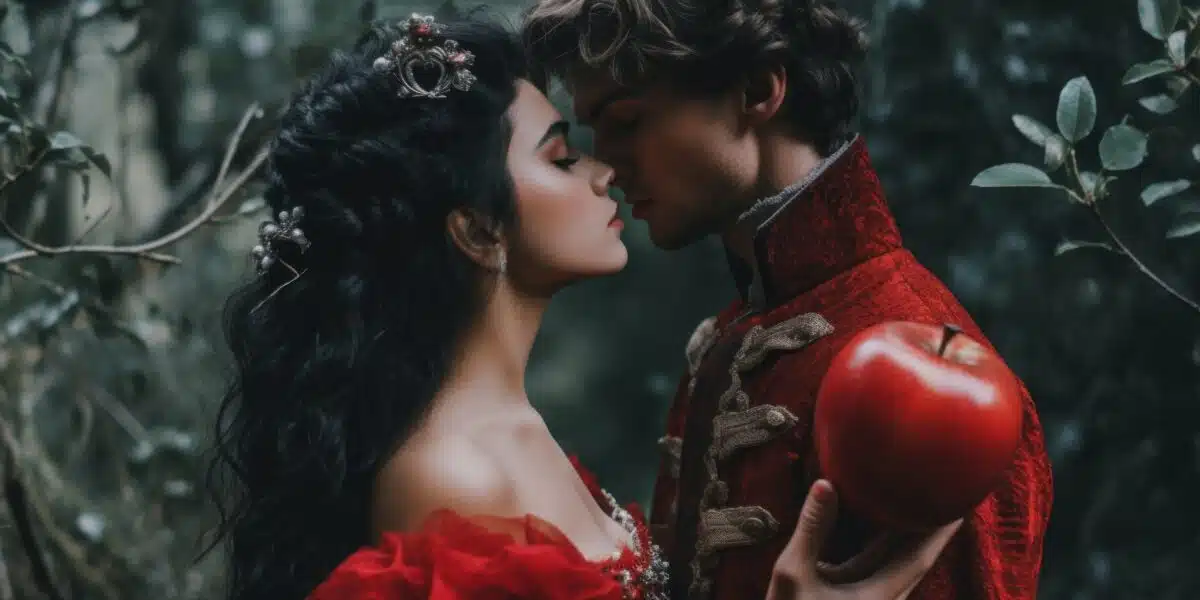
Explore Arthur Rimbaud’s bold and unrestrained love poems that are sure to pique your imagination!
With a touch of elegance and a dash of sensuality, Rimbaud’s verses transport us to a realm where passion intertwines with eloquence, leaving us captivated by the beauty of his romantic musings.
“Sun and Flesh” by Arthur Rimbaud
The Sun, the hearth of tenderness and life,
Pours burning love onto the ravished earth,
And when one lies down in the valley, one can feel
That the earth is nubile and overflowing with blood;
That its immense breast, lifted by a soul,
Is made of love like a god, of flesh like a woman,
And that it contains, pregnant with sap and rays,
The great swarming of all embryos!
And everything grows, and everything rises!
Oh Venus, oh Goddess!
I long for the times of ancient youth,
Of lascivious satyrs, of animal fauns,
Gods who bit the bark of branches with love
And kissed the blonde Nymphs in the water lilies!
I long for the times when the sap of the world,
The river’s water, the pink blood of green trees
In Pan’s veins created a universe!
Where the ground pulsed, green, beneath his goat feet;
Where, gently kissing the clear syrinx, his lips
Modulated under the sky the great hymn of love;
Where, standing on the plain, he heard all around
Nature’s living response to his call;
Where the mute trees, cradling the singing bird,
The earth cradling man, and the deep blue Ocean
And all the animals, loved, loved in God!
I long for the times of great Cybele
Who was said to roam, gigantically beautiful,
In a grand chariot of bronze through splendid cities;
Her double breast poured into the immensities
The pure flow of infinite life.
Man sucked, happily, from her blessed breast,
Like a little child playing on her knees.
—Because he was strong, man was chaste and gentle.
Alas! Now he says: I know the things,
And goes, eyes closed and ears closed;
—Yet, no more gods! No more gods! Man is King!
Man is God! But Love, that’s the great Faith!
Oh! If man still drew from your breast,
Great mother of gods and men, Cybele;
If he had not abandoned the immortal Astarte,
Who once, emerging in the vast light
Of the blue waves, a flower of fragrant flesh,
Showed her pink navel where foam fell like snow,
And made the nightingale sing, the Goddess with victorious dark eyes,
In the woods and love in hearts!
II
I believe in you! I believe in you! Divine mother,
Marine Aphrodite!—Oh! The road is bitter
Since the other God harnessed us to his cross;
Flesh, Marble, Flower, Venus, in you I believe!
—Yes, man is sad and ugly, sad beneath the vast sky,
He wears clothes because he is no longer chaste,
Because he has defiled his proud God-like torso,
And has shrunk, like an idol in the fire,
His Olympian body into filthy servitude!
Yes, even after death, in pale skeletons,
He wants to live, insulting the first beauty!
—And the Idol where you placed so much virginity,
Where you divinized our clay, Woman,
So that man could enlighten his poor soul
And slowly ascend, in immense love,
From the earthly prison to the beauty of the day,
Woman no longer knows how to be a courtesan!
—It’s a good joke! And the world laughs
At the sweet and sacred name of great Venus!
III
If the times returned, the times that have come!
—For Man is finished! Man has played all the roles!
In broad daylight, tired of smashing idols,
He will rise, free from all his Gods,
And, as he is of heaven, he will scrutinize the heavens!
The Ideal, the invincible, eternal thought,
All the God who lives, beneath his fleshly clay,
Will rise, will rise, will burn on his forehead!
And when you see him scan the entire horizon,
Despising old yokes, free from all fear,
You will come to give him holy Redemption!
—Splendid, radiant, in the midst of the great seas
You will rise, casting on the vast Universe
Infinite Love in an infinite smile!
The World will vibrate like an immense lyre
In the trembling of an immense kiss:
—The World thirsts for love: you will come to appease it.
IV
Oh, splendor of flesh! Oh, ideal splendor!
Oh, renewal of love, triumphant dawn
Where, bending at their feet, Gods and Heroes
Kallipige the white and little Eros
Will brush, covered with the snow of roses,
Women and flowers under their beautiful blossoming feet!
Oh, great Ariadne, who sheds your tears
On the shore, watching Them sail away on the waves,
White under the sun, Theseus’s sail,
Oh, sweet virgin child that a night has broken,
Be silent! On his chariot of gold embroidered with black grapes,
Lysios, paraded through the Phrygian fields
By lascivious tigers and reddish panthers,
Reddens the dark mosses along the blue rivers.
Zeus, the Bull, cradles on his neck like a child
Europa’s naked body, who throws her white arm
Around the God’s trembling neck;
He slowly turns his vague eye towards her;
She lets her pale, flowery cheek trail
Against Zeus’s forehead; her eyes are closed; she dies
In a divine kiss, and the murmuring wave
Fertilizes her golden hair with its foam.
—Between the oleander and the chattering lotus,
The great dreamy Swan lovingly glides,
Embracing Leda with the whiteness of his wing;
—And while Cypris passes, strangely beautiful,
And, arching the splendid curves of her loins,
Proudly displays the gold of her ample breasts
And her snowy belly embroidered with black moss,
—Hercules, the Tamer, who, like a glory,
Girds his massive body with the lion’s pelt,
Advances, terrible and gentle, on the horizon!
In the summer moon vaguely illuminated,
Standing naked, and dreaming in her golden pallor,
Which the heavy wave of her long blue hair stains,
In the dark clearing where the moss sparkles,
The Dryad gazes at the silent sky…
—The white Selene lets her veil float,
Timidly, over the feet of fair Endymion,
And casts a kiss to him in a pale ray…
—The Source weeps far away in long ecstasy…
It’s the Nymph who dreams, an elbow on her vase,
Of the fair young man her water pressed.
—A breeze of love has passed through the night,
And, in the sacred woods, amidst the grand trees,
Majestically standing, the dark Marbles,
The Gods, on whose foreheads the Bullfinch nests,
—The Gods listen to Man and the infinite World!
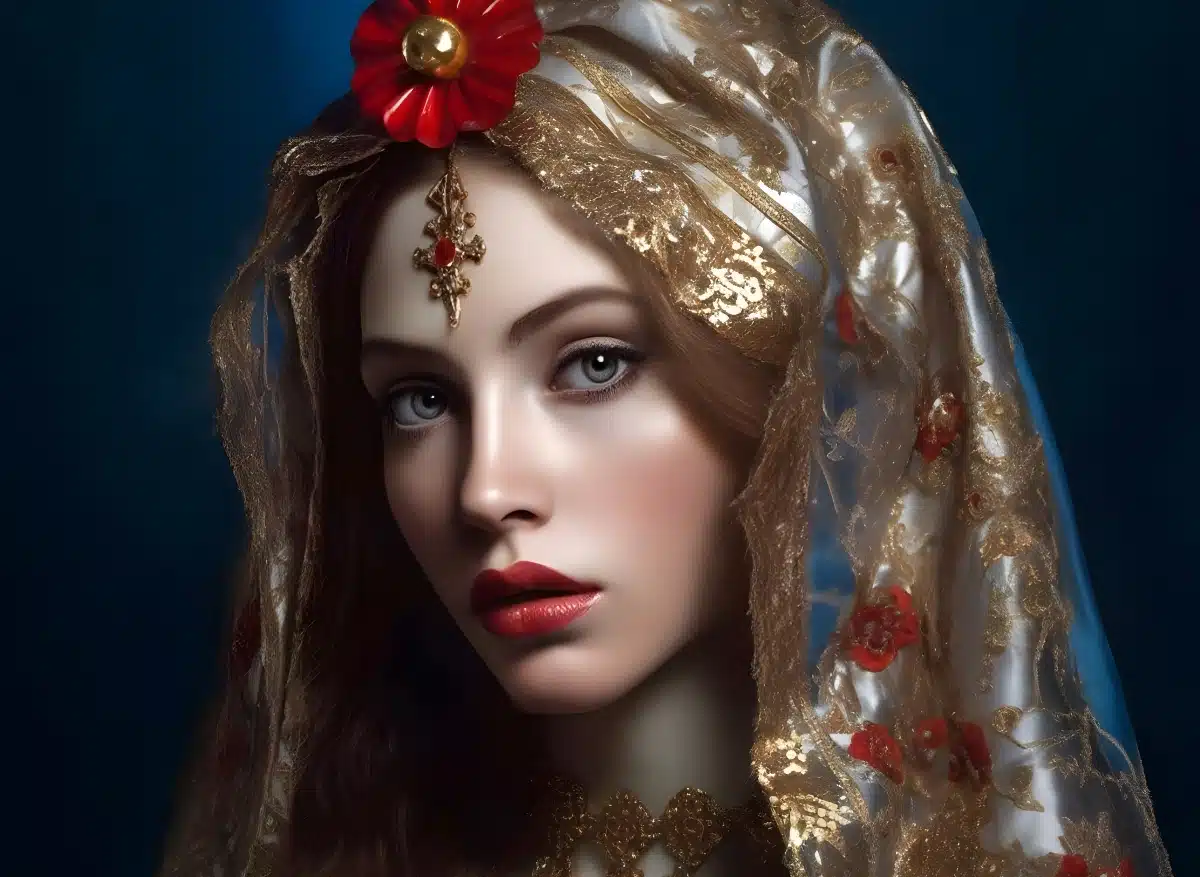
“The Maid” by Arthur Rimbaud
In the brown dining room, filled with the scent
Of varnish and fruits, comfortably,
I was helping myself to a dish of some
Belgian fare, spreading out in my enormous chair.
While eating, I listened to the clock—happy and calm.
The kitchen door opened with a gust of air
—And the maid came in, for reasons I don’t know,
Her headscarf half undone, slyly coiffed.
And while running her trembling little finger
Across her cheek, a velvety peachy-pink and white,
And with her childish lips forming a pout,
She arranged the dishes near me, to tease me;
—Then, like this,—of course, to get a kiss,—
Softly: “Feel this: I’ve caught a chill on my cheek…”
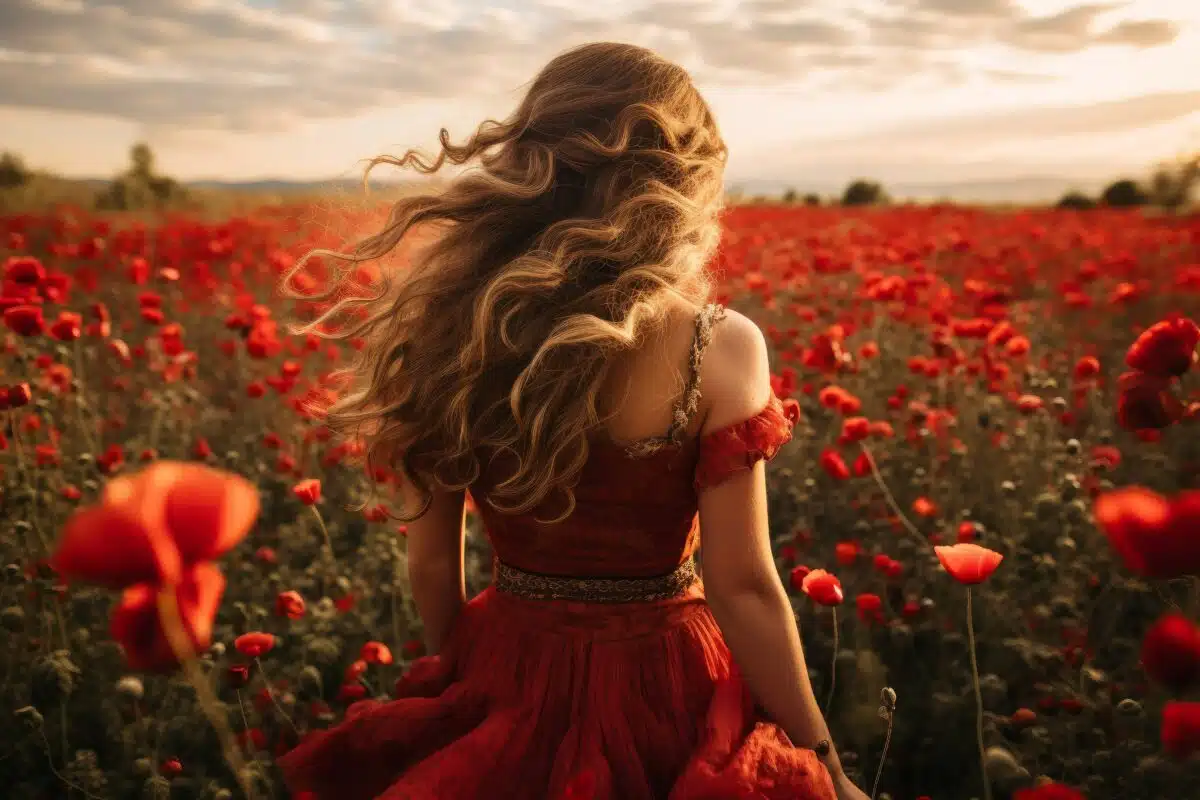
“Sensation” by Arthur Rembaud
On the blue summer evenings, I will wander along the paths,
Stroked by the wheat, treading the delicate grass:
Dreaming, I will feel its freshness beneath my feet.
I will let the wind bathe my bare head!
I will not speak, I will not think about anything;
But an infinite love will rise in my soul,
And I will go far, very far, like a gypsy
Through Nature—happy, as if with a woman.
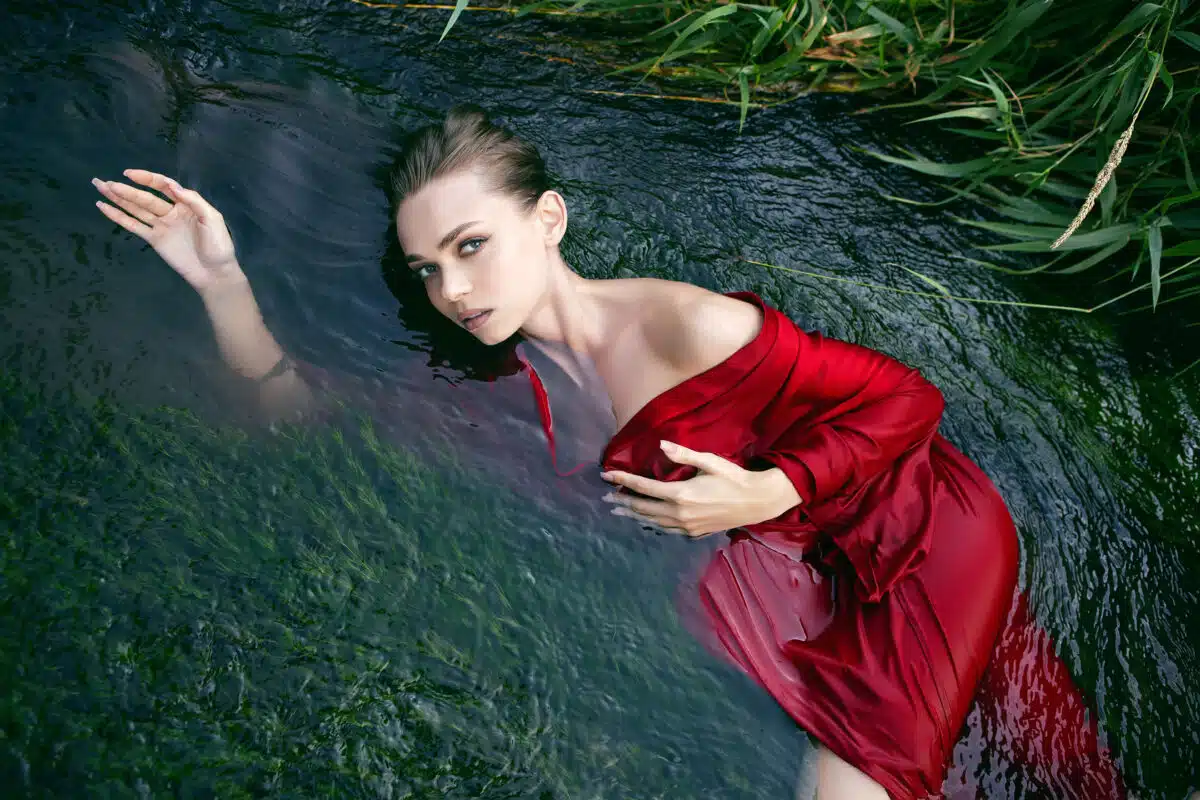
“Ophelia” by Arthur Rimbaud
I
On the calm, dark waters where the stars sleep,
The pale Ophelia floats like a great lily,
Floats very slowly, lying in her long veils…
—In the woods, distant hunting calls can be heard…
For more than a thousand years, sad Ophelia
Passes, a white phantom, on the long black river;
For more than a thousand years, her sweet madness
Whispers her romance to the evening breeze.
The wind kisses her breasts and unfolds her long veils,
Softly rocked by the waters;
The trembling willows weep over her shoulder,
And the reeds bow down to her thoughtful brow.
The crushed water lilies sigh all around her;
Sometimes, she awakens, in a sleeping alder,
A nest from which a little wing shivers.
—A mysterious song falls from the golden stars.
II
O pale Ophelia! Beautiful as the snow,
Yes, you died, my child, carried away by a river!
—It’s because the winds, coming down from the great mountains of Norway,
Had whispered to you softly about harsh liberty!
It’s because an unknown breath, tousling your hair,
Carried strange sounds to your dreamy mind;
That your heart heard the voice of Nature
In the tree’s moans and the night’s sighs!
It’s because the voice of the seas, like an immense moan,
Broke your child’s heart, too human and too gentle;
It’s because one April morning, a beautiful pale horseman,
A poor madman, sat, mute, at your knees!
Heaven! Love! Liberty! What a dream, O poor little mad one,
You were melting into him like snow in the fire.
Your great visions choked your words:
—A terrible Infinite terrified your blue eyes!
III
—And the Poet says that in the starlight
You come at night to pick the flowers you gather;
And that he has seen on the water, lying in her long veils,
The pale Ophelia floating, like a great lily.
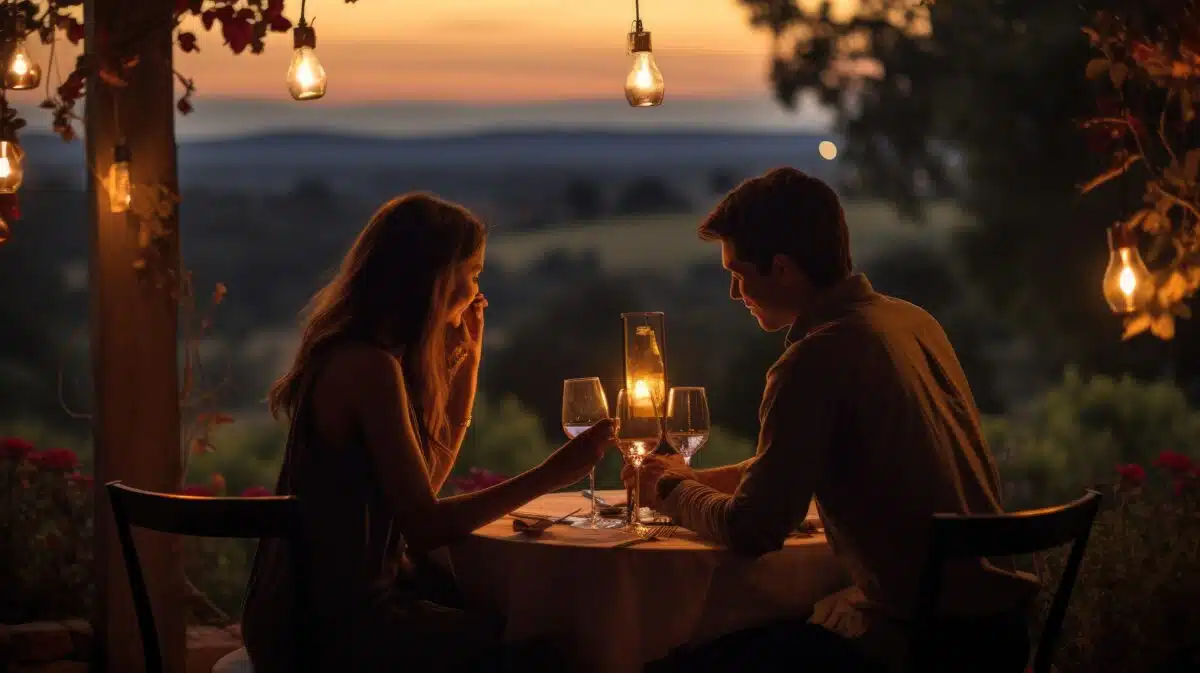
“Romance” by Arthur Rimbaud
I
We’re not serious when we’re seventeen.
—One fine evening, away with the beer and lemonade,
Those noisy cafés with their dazzling chandeliers!
—We head for the green linden trees of the promenade,
The lindens smell so good on fine June evenings!
The air is sometimes so gentle that we close our eyes;
The wind, filled with sounds,—the city’s not far,—
Carries scents of vineyards and scents of beer…
II
—There we spot a tiny scrap
Of dark azure, framed by a small branch,
Pierced by an evil star, which blends
With soft shivers, small and all white…
June night! Seventeen years old!—We let ourselves be intoxicated.
The sap is like champagne and rises to your head…
You drift; you feel a kiss on your lips
That pulses there, like a little beast…
III
Your wild heart wanders through novels,
—When, in the glow of a pale streetlamp,
A young lady passes by with charming airs,
Under the shadow of her father’s frightening stiff collar…
And, as she finds you immensely naive,
While making her little boots trot,
She turns, alert and with a quick movement…
—On your lips then, cavatinas die away…
IV
You are in love. Praised until August.
You are in love.—Your sonnets make her laugh.
All your friends leave; you are in bad taste.
—Then the adored one, one evening, deigned to write to you…!
—That evening, …—you return to the dazzling cafés,
You ask for beers or lemonade…
We’re not serious when we’re seventeen
And when we have green lindens on the promenade.
- 53 Best Poems by John Keats
- 55 Best Poems by William Shakespeare
- 47 Best Poems by Edgar Allan Poe
- 43 Best Poems by Rumi
- 35 Bewitching Love Poems by Rumi
- 47 Admirable Love Poems by William Butler Yeats
- 21 Sensuous Love Poems by John Keats
- 21 Absorbing Love Poems by Pablo Neruda
- 49 Consuming Love Poems by Shakespeare
